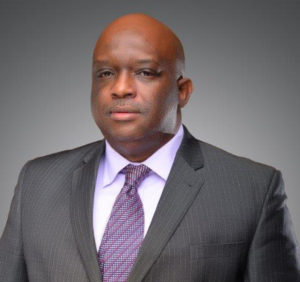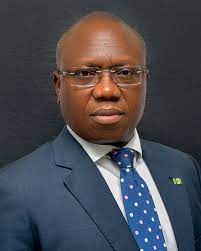19TH NATIONAL LEASE CONFERENCE HELD AT SHERATON HOTELS, IKEJA – LAGOS AND VIRTUAL ON TUESDAY, 16TH NOV, 2021
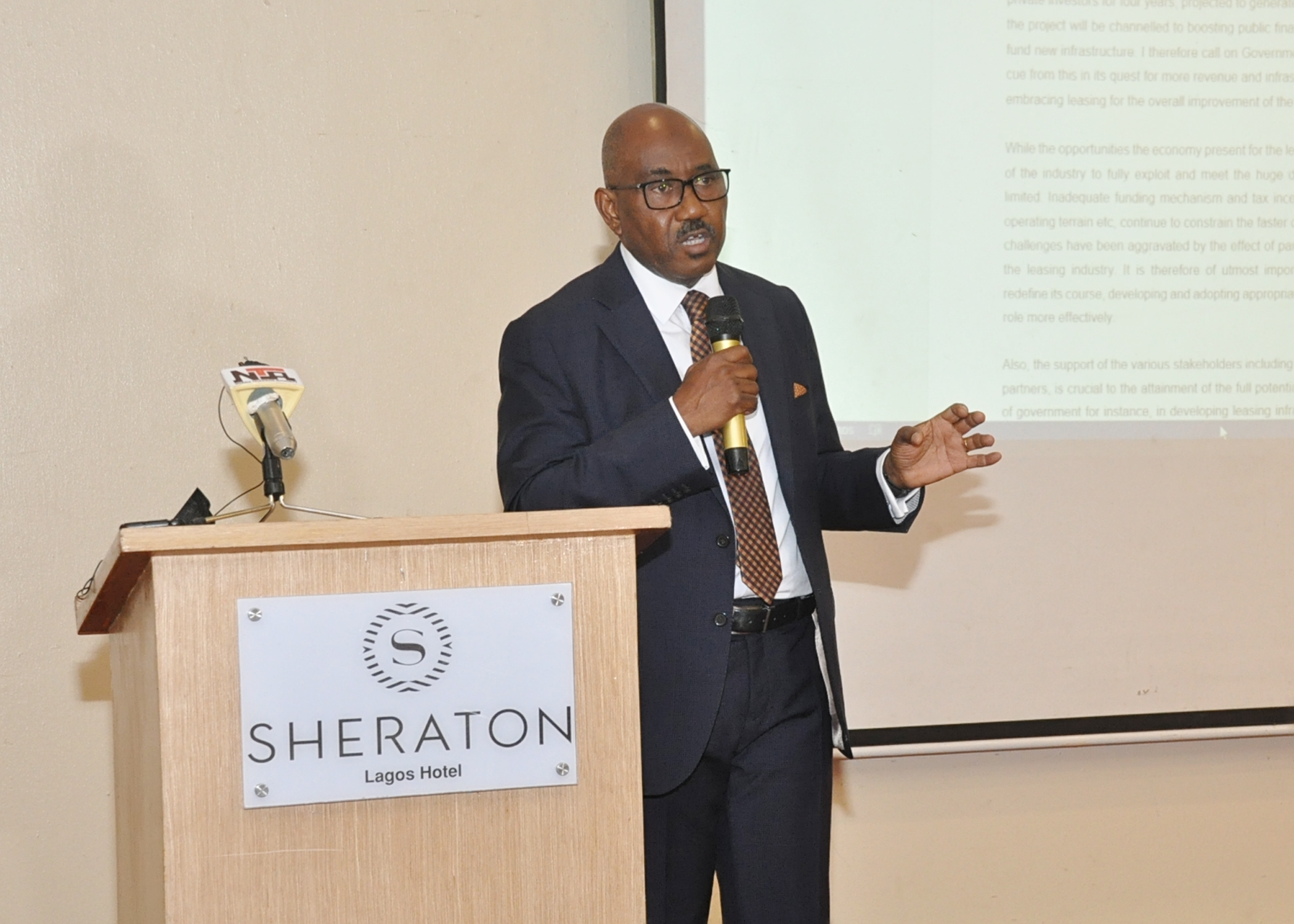
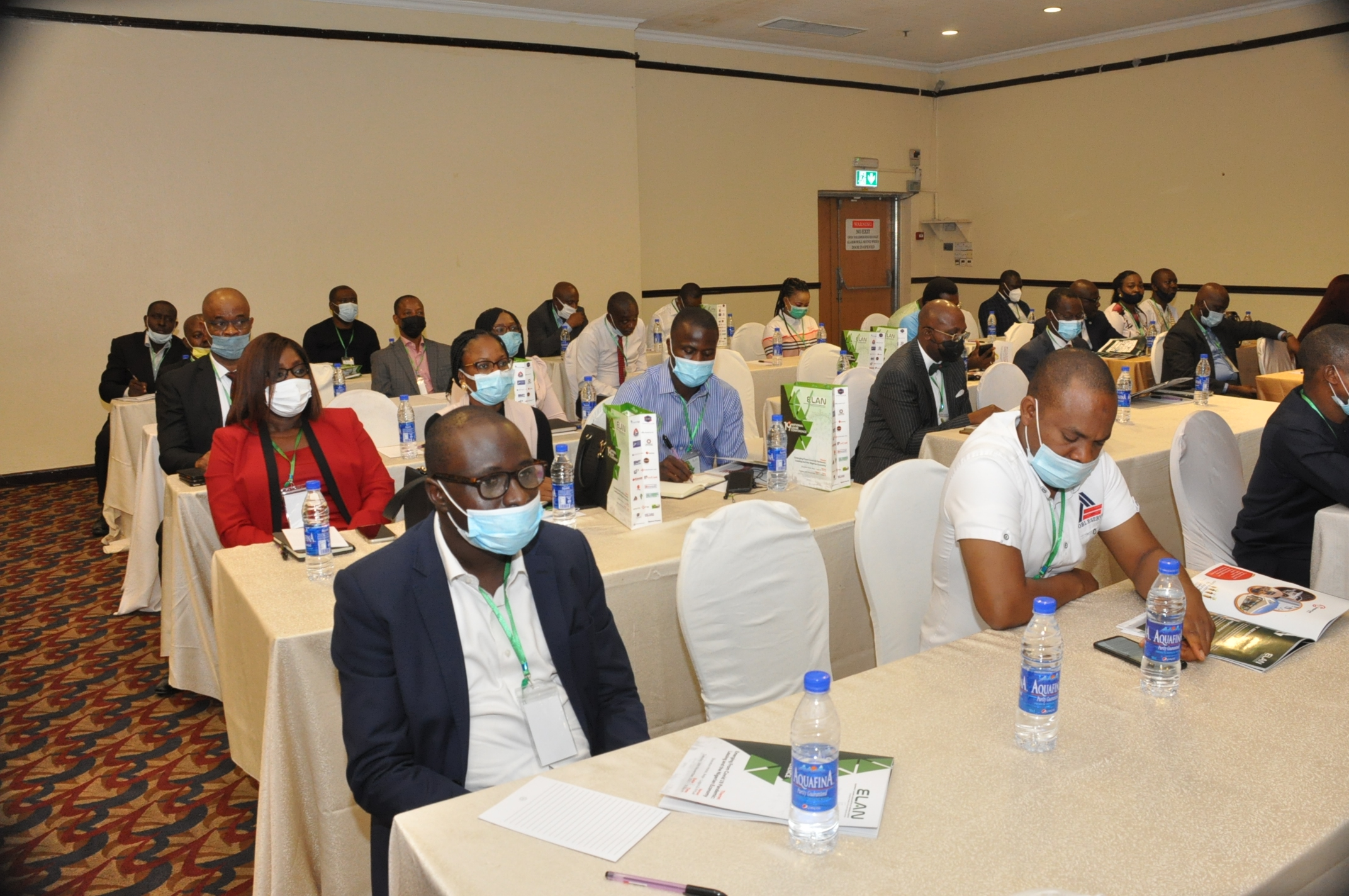
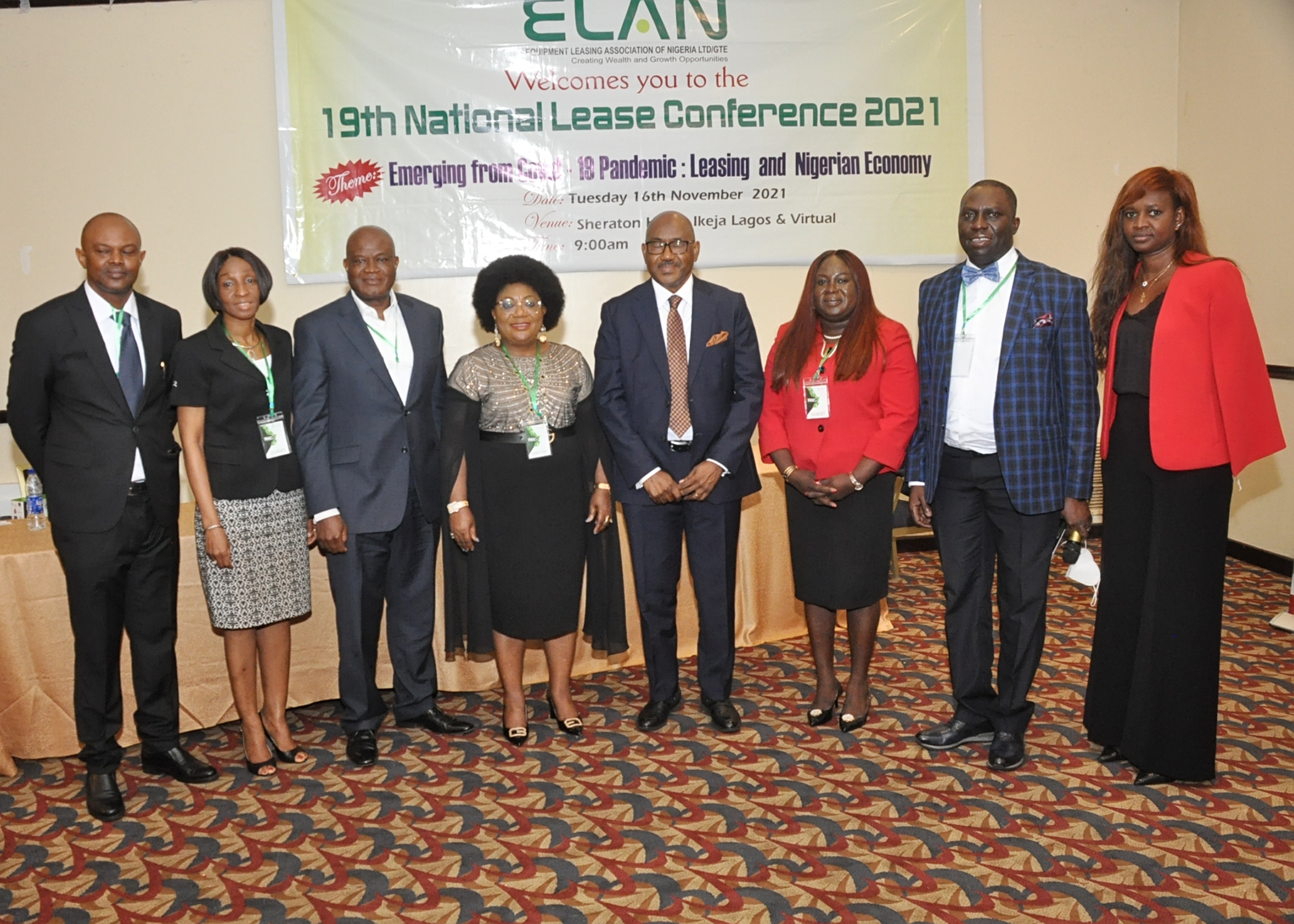
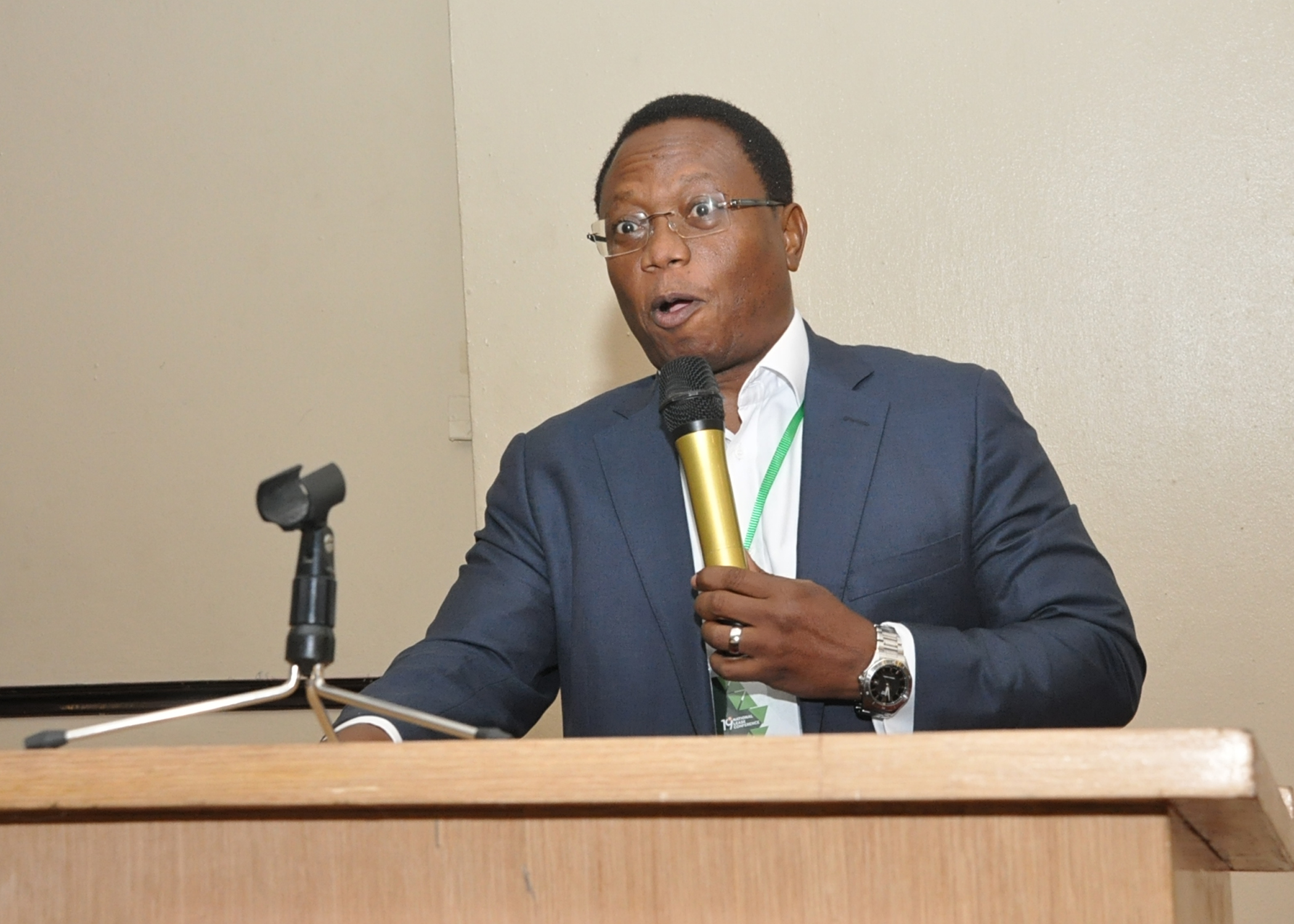
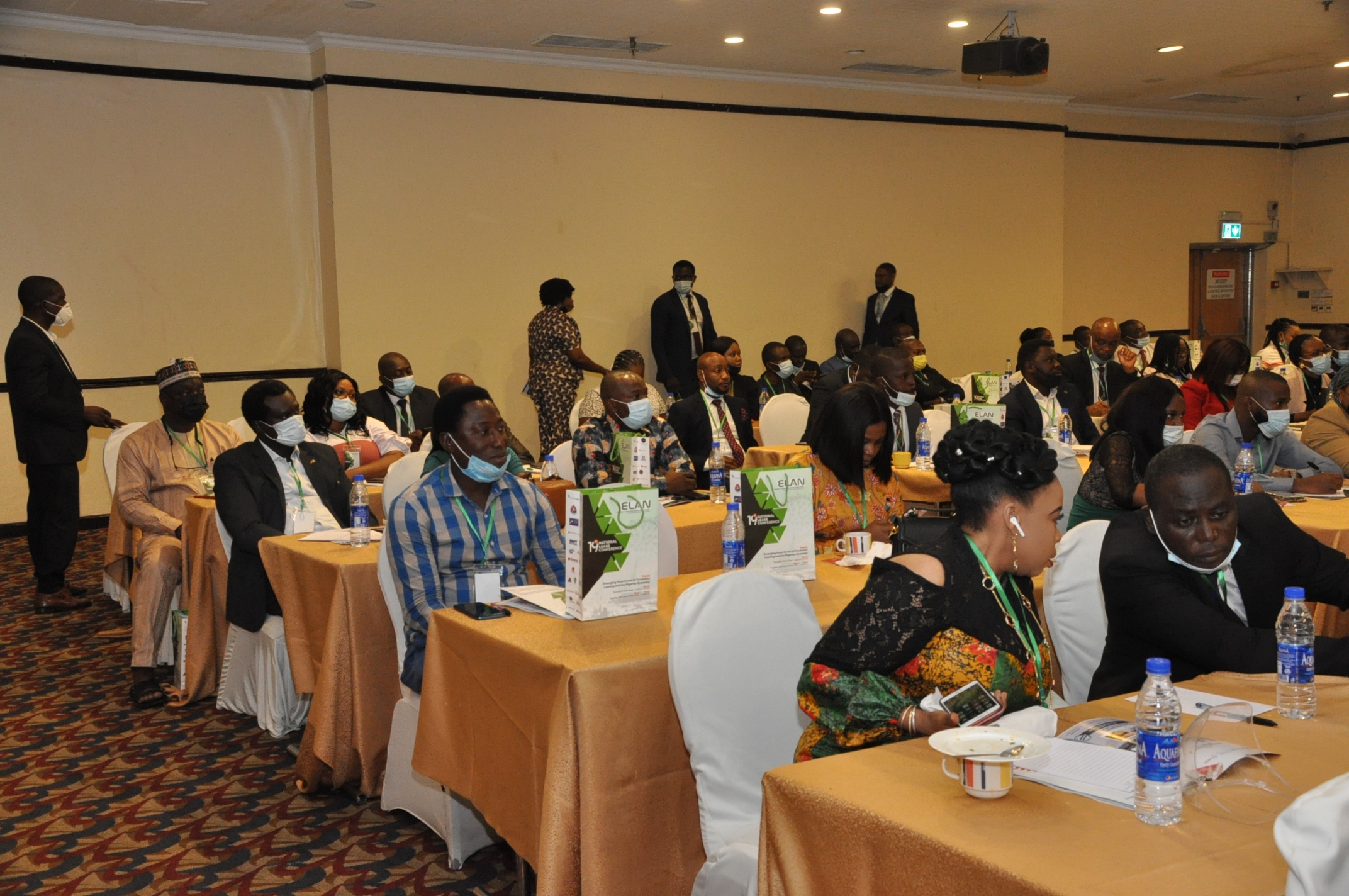
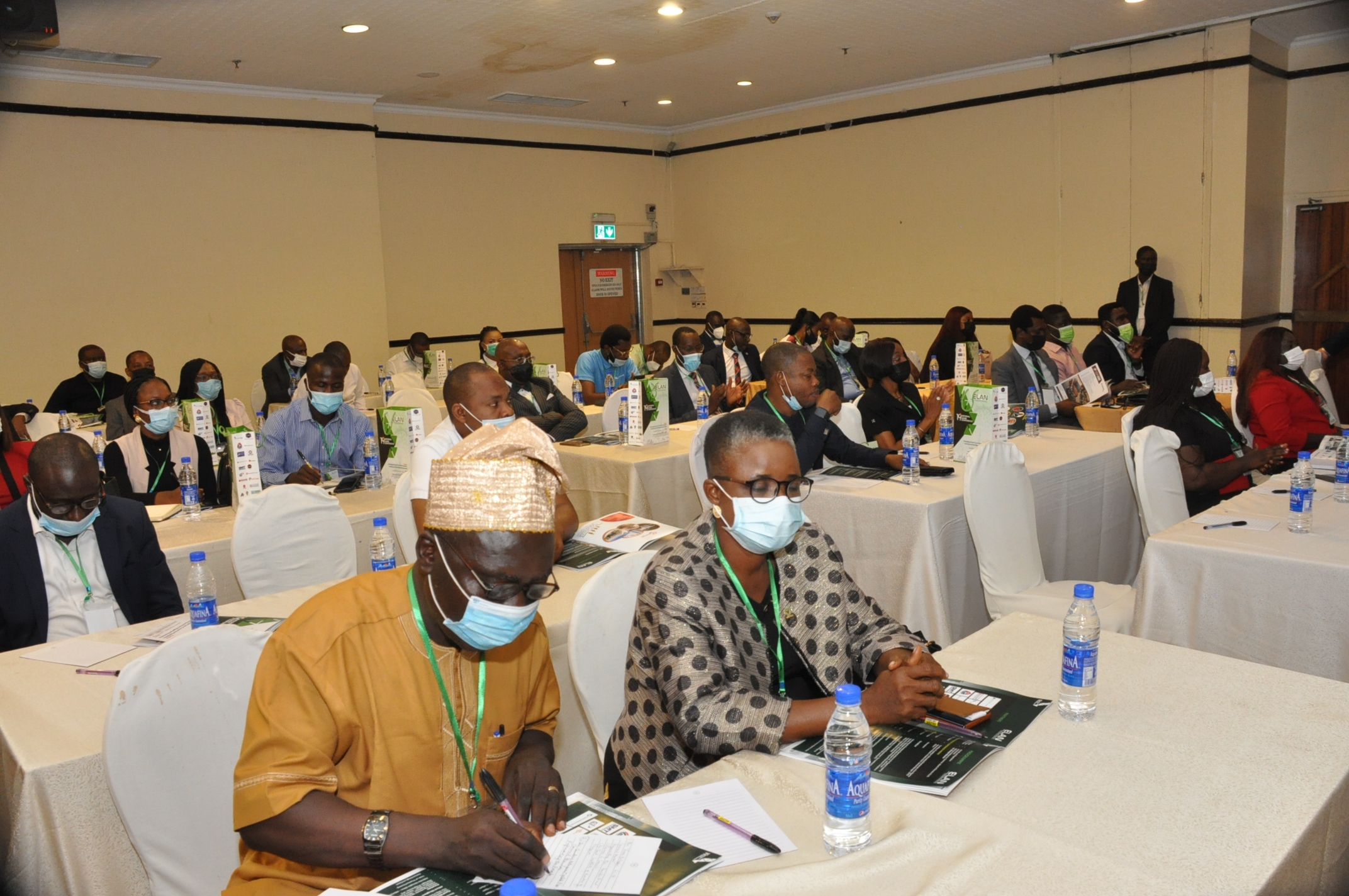
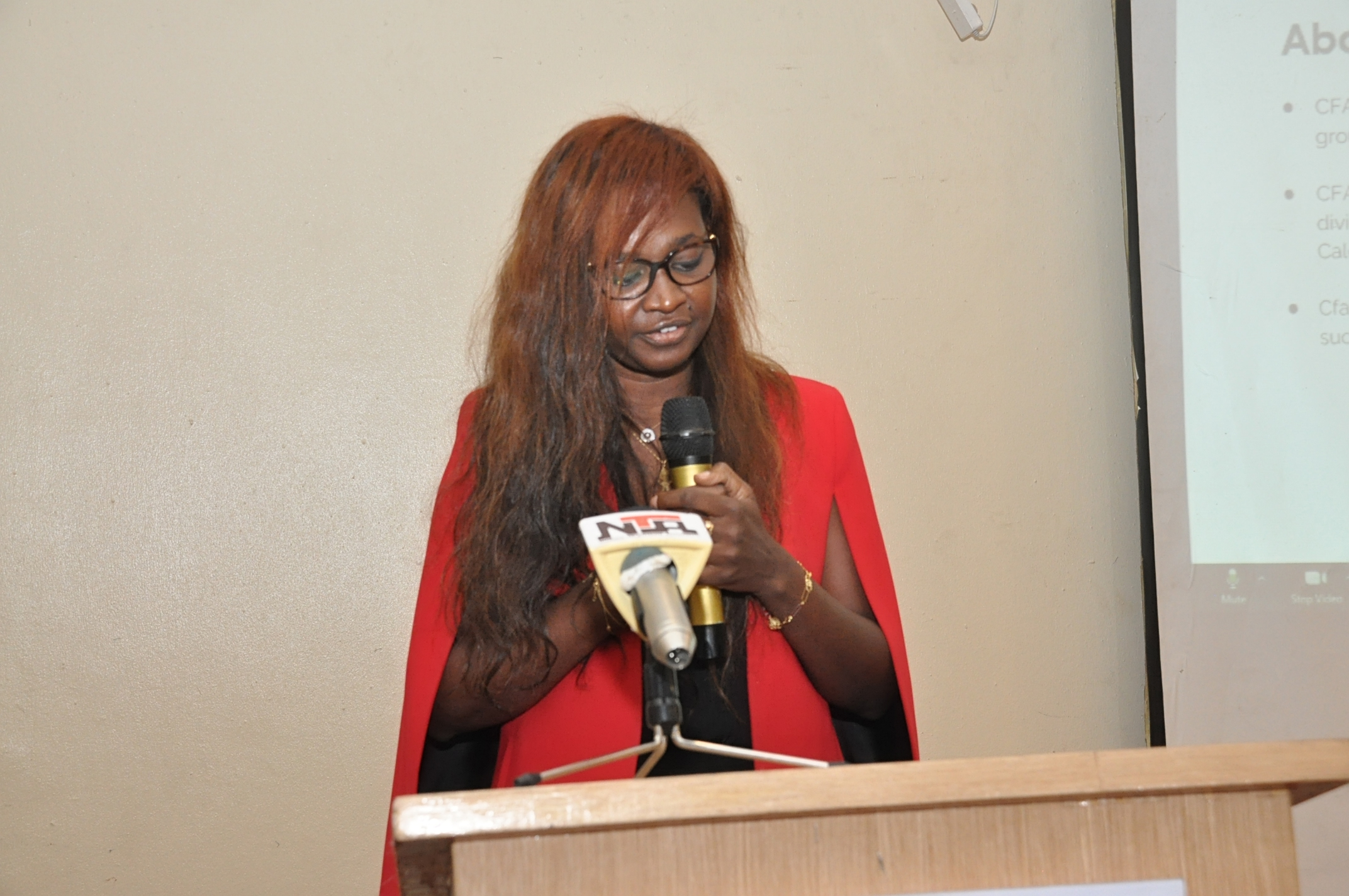
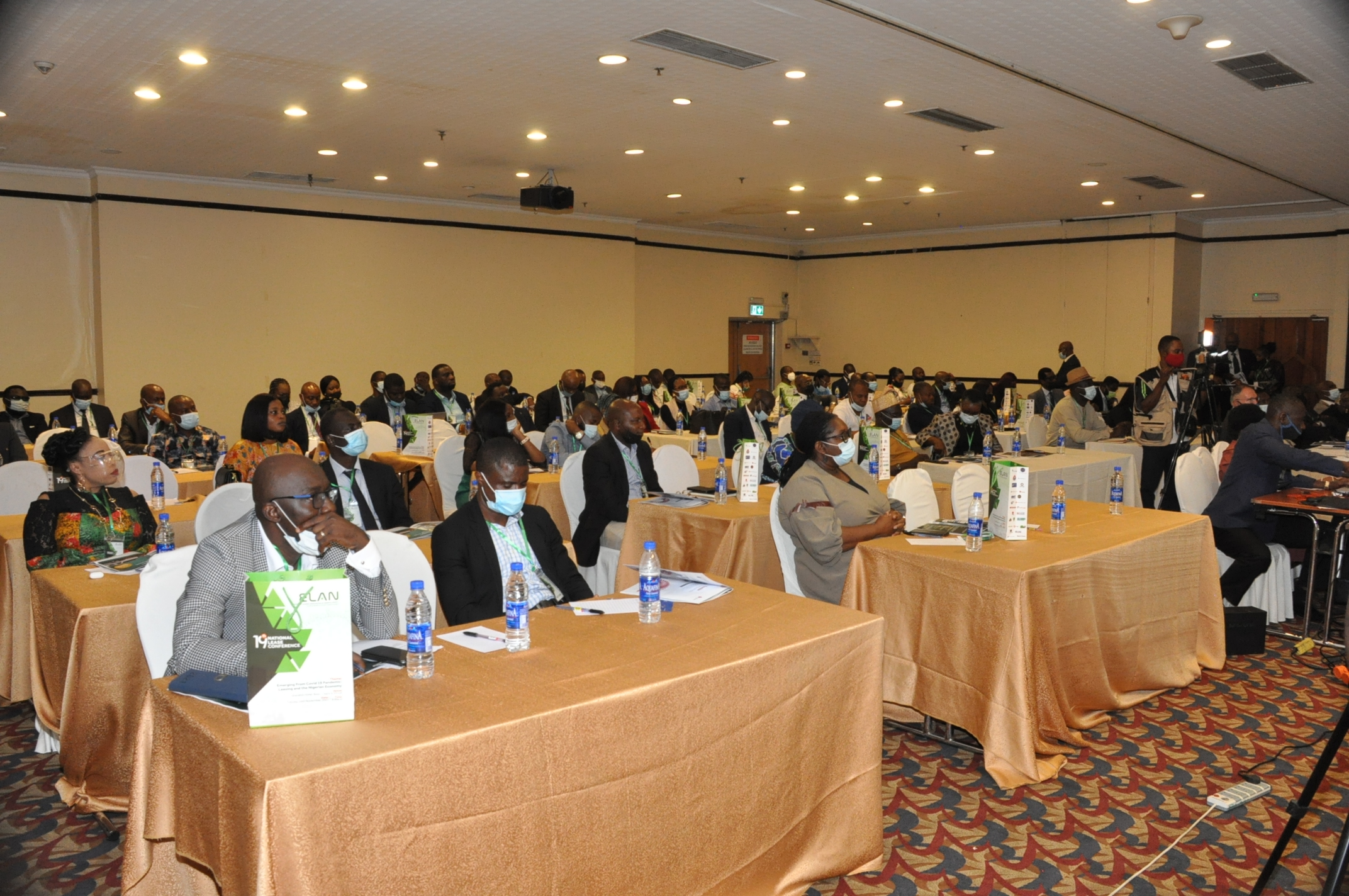
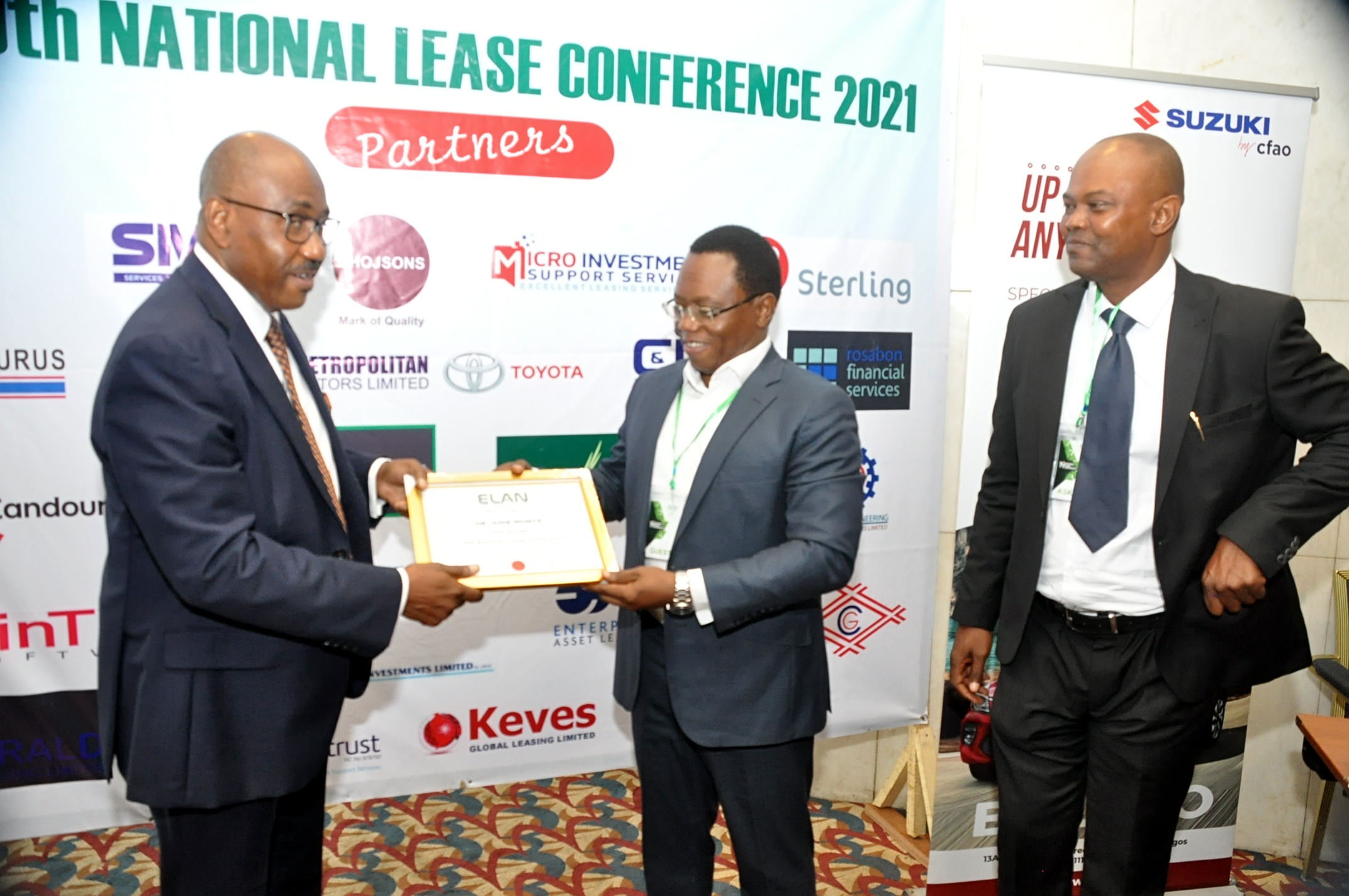
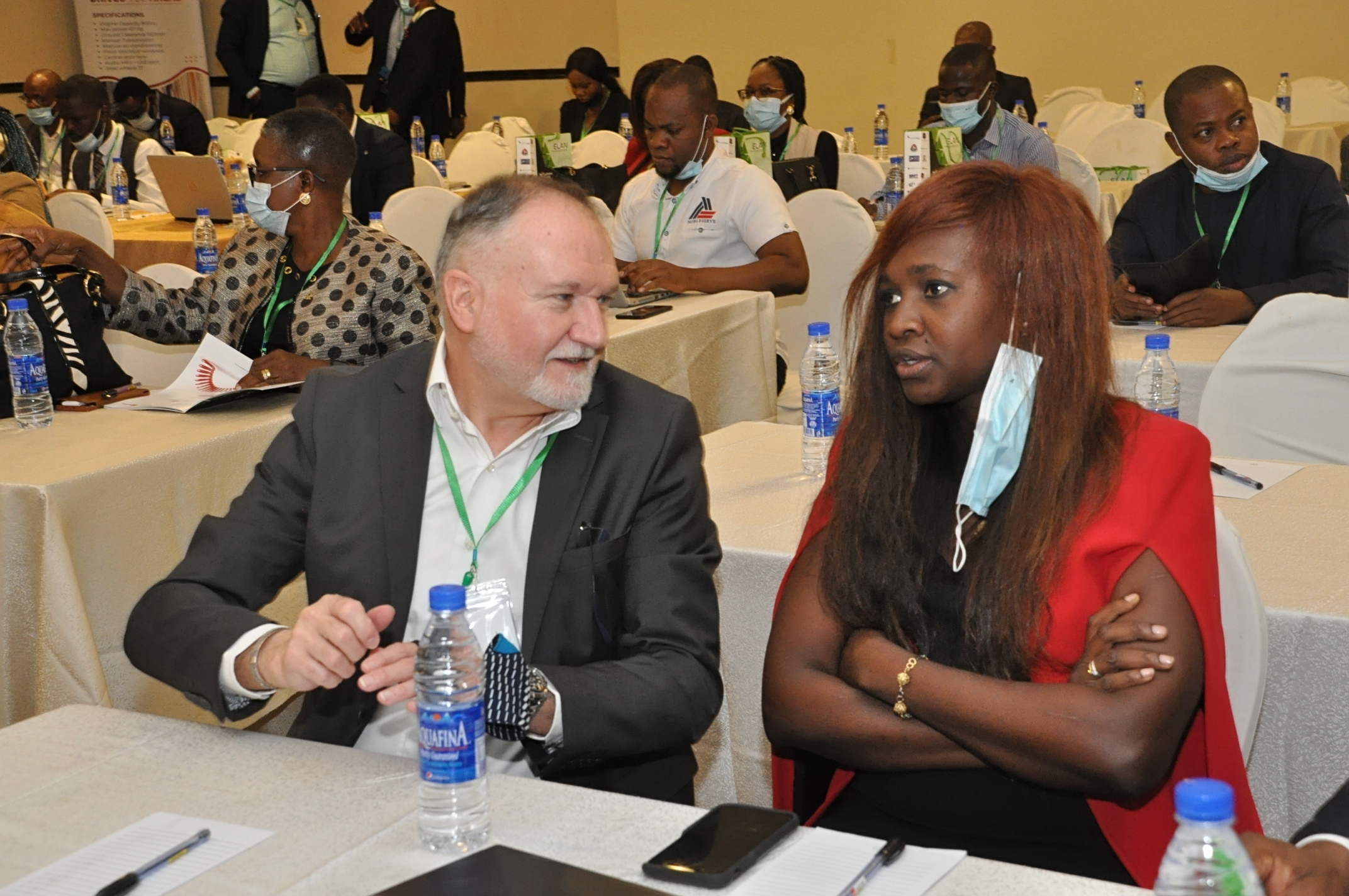
SPEAKERS’ PROFILE
ADENIKE IBIROGBA (MRS), MANAGING DIRECTOR/CEO, NIKKY TAURUS NIGERIA LIMITED
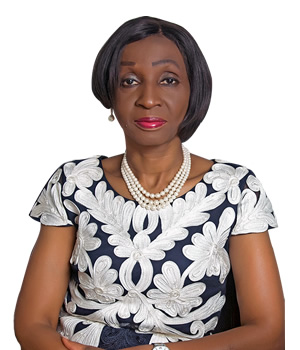
Mrs Ibirogba will join other distinguished Panelists to discuss the topic: The Leasing Industry in Post Covid 19 Economy: The Way Forward at the 19th National Lease Conference.
Mrs Ibirogba is the Managing Director of Nikky Taurus Nigeria Limited. She graduated with a bachelor’s degree in Law and Politics from the University of Keele, United Kingdom in 1984 and has a master’s degree also in law from the University of London. She was called to the Nigerian Bar in 1986. In 1995, she founded Nikky Taurus Nigeria Limited, a transportation and leasing company. She has over 25 years experience in Leasing and Logistics.
JONATHAN GIGIN – SENIOR FINANCIAL SECTOR SPECIALIST/REGIONALL PROGRAMME MANAGER IFC
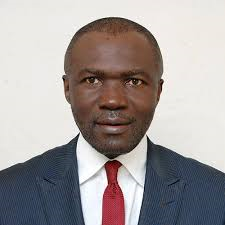
Mr Gigin will join other distinguished Panelists to discuss the topic: The Leasing Industry in Post Covid 19 Economy: The Way Forward at the 19th National Lease Conference.
Mr Jonathan Gigin has 20 years experience in the field of leasing and extensive experience of working with leasing companies and governments in providing leasing advisory across sub-sahara Africa.
He combines widespread knowledge of commercial leasing operations gained through his experience working in the leasing sector and under the IFC technical assistance leasing program across sub-sahara Africa.
ADEBAYO ADELEKE – MANAGING DIRECOR/CEO, OPTICOM FINANCE LIMIED
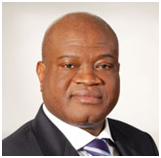
Mr Adeleke will join other distinguished Panelists to discuss the topic: The Leasing Industry in Post Covid 19 Economy: The Way Forward at the 19th National Lease Conference.
Mr. Adeleke is a long-time professional and senior executive in the Nigerian banking industry. He was, until recently, the Executive vice president of First Bank of Nigeria Plc.
He has handled diverse senior roles and responsibilities in his professional career at Nigeria International Bank Limited (Citibank), United Bank for Africa Plc. and First Bank of Nigeria Plc. he has a proven ability and solid track record of accomplishments in Commercial, Corporate & Investment Banking, Investment & Fund Management.
He was Managing Director & CEO of FBN (Merchant Bankers) Limited between 2003 and 2005, when it was consolidated with First Bank Plc. He also served as the pioneer Managing Director & CEO of FBN Capital Limited, one of Nigeria’s leading investment banking firm.
He holds a B.Sc. (Hon.) degree from the University of Ibadan and an MBA from Thunderbird Graduate School, USA. He is an AMP of INSEAD, France and the Harvard Business School, USA.
He has served as Chairman of the Boards of FBN Securities Limited and Digiprints Limited for many years. He was also a Director of many companies and associations including; Kakawa Discount House Limited, First Funds Limited, Heritage Funds and Equipment Leasing Association of Nigeria. He presently serves as a Director of La Casera Company Plc and on the advisory Board of Banana Island School.
DEBOLA AGUNBIADE – MANAGING DIRECTOR/CEO, CANDOURCREST AFRICA LIMITED
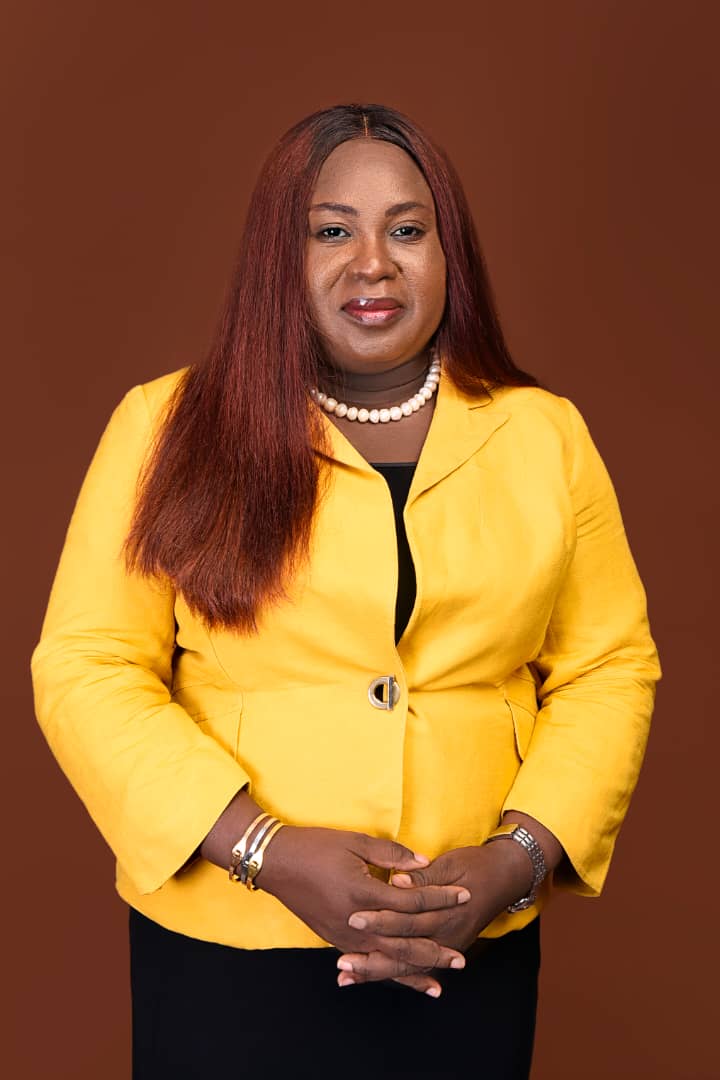
Mrs Agunbiade will join other distinguished Panelists to discuss the topic: The Leasing Industry in Post Covid 19 Economy: The Way Forward at the 19th National Lease Conference.
Bola Agunbiade is an Economist, Chartered Accountant, Risk Manager and Financial Advisor, with over 20 years working experience in various aspects of accounting, finance, leasing, risk and asset management. She is the Founder/Managing Director/CEO of CandourCrest Africa Limited, a Company she set up in 2019 and has grown significantly over the years.
Prior to setting up CandourCrest Africa Limited. She was the Chief Executive Officer of CFS Financial Services Limited. She held this position for over four years, having had prior acting appointment in the same role for five months, and dedicated a total of 14 years of service to CFS Financial Services (Formerly Citicorp Financial Services). She was, until her appointment as Chief Executive Officer of CFS Financial Services, responsible for setting up key structures in pioneer roles that formed the bedrock of CFS Financial Services, thereby making it one of the most respected financial services companies in Nigeria. She occupied roles that included: Head of Finance and Accounts; Head of Internal Audit; Head of Risk & Asset Management; amongst other roles.
Bola, who hails from Epe in Lagos State, had her first degree in Economics from Lagos State University, and a Higher National Diploma in Accountancy from Yaba College of Technology, Lagos State. She is a Fellow of the Institute of Chartered Accountants of Nigeria (ICAN), and holds professional specialist qualifications in Risk Management, from the Institute of Risk Management of the United Kingdom, as well as being an Associate Member of the Chartered Institute of Marketers of Nigeria. She is an alumnus of the prestigious Lagos Business School, where she participated in the institution’s Chief Executives Programme.
Bola was, prior to her employment with CFS Financial Services, the Accountant at Sigma Petroleum, a company in the downstream sector of the oil and gas industry. She was the first non-founding employee to be unanimously appointed as a Director and approved as a shareholder at CFS Financial Services, in which capacity, she championed the recovery of many non-performing accounts and provided risk-mitigating strategies to reduce risk and loss for the Company, at times of necessity.
She was the first female President of the Finance House Association of Nigeria, the umbrella body of all finance houses, and an advocacy organisation, which witnessed revival and vibrancy under her leadership. She is a member of the Women in Management, Business and Public Service (WIMBIZ) and Women in Finance Nigeria (WIFNG), non-profit organisations focused on increasing, developing and supporting the success rates of female entrepreneurs, and the proportion of women in senior positions in corporate organisations and the public service.
As a result of her background, she has the passion of creating an impact through the sharing of the knowledge, skills and experiences she had acquired over the years by educating individuals and businesses (MSME’s) on Personal and Business Finance. She has spoken at various seminars on these topics.
Bola is a devout Christian married to Kolawole Agunbiade, and they are blessed with three children.
18TH NATIONAL LEASE CONFERENCE HELD VIRTUALLY ON THURSDAY, 19TH NOVEMBER 2020.
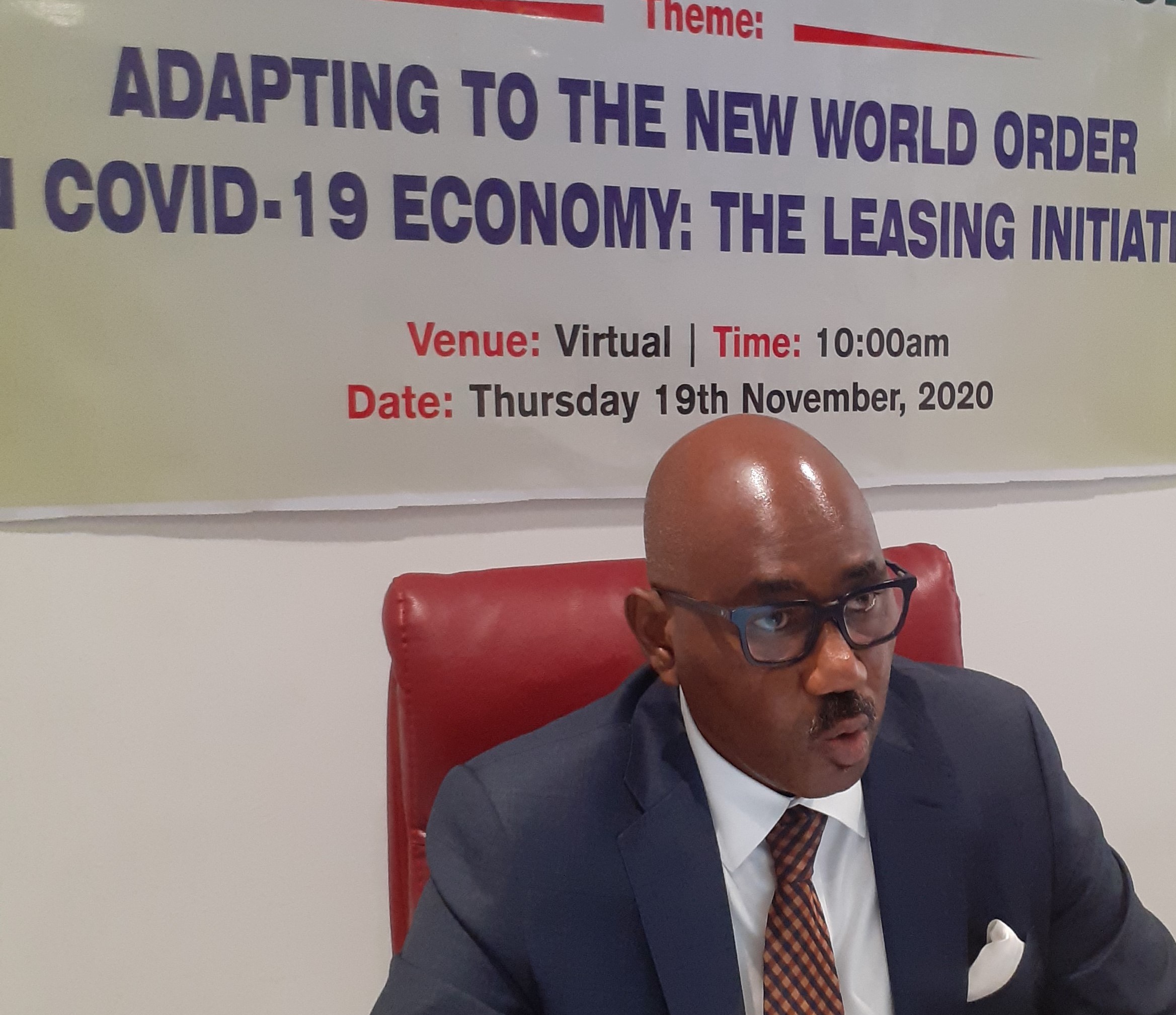

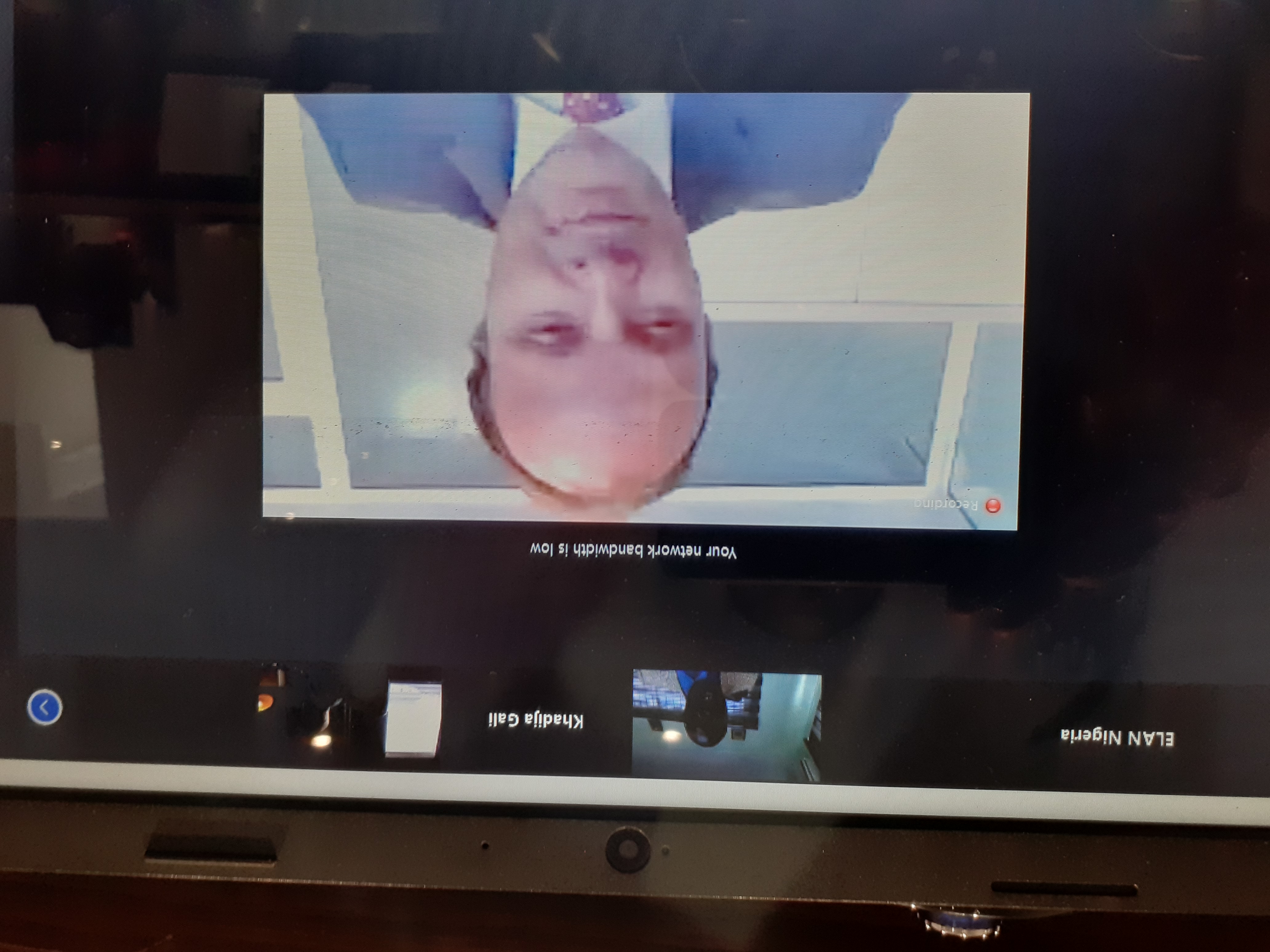
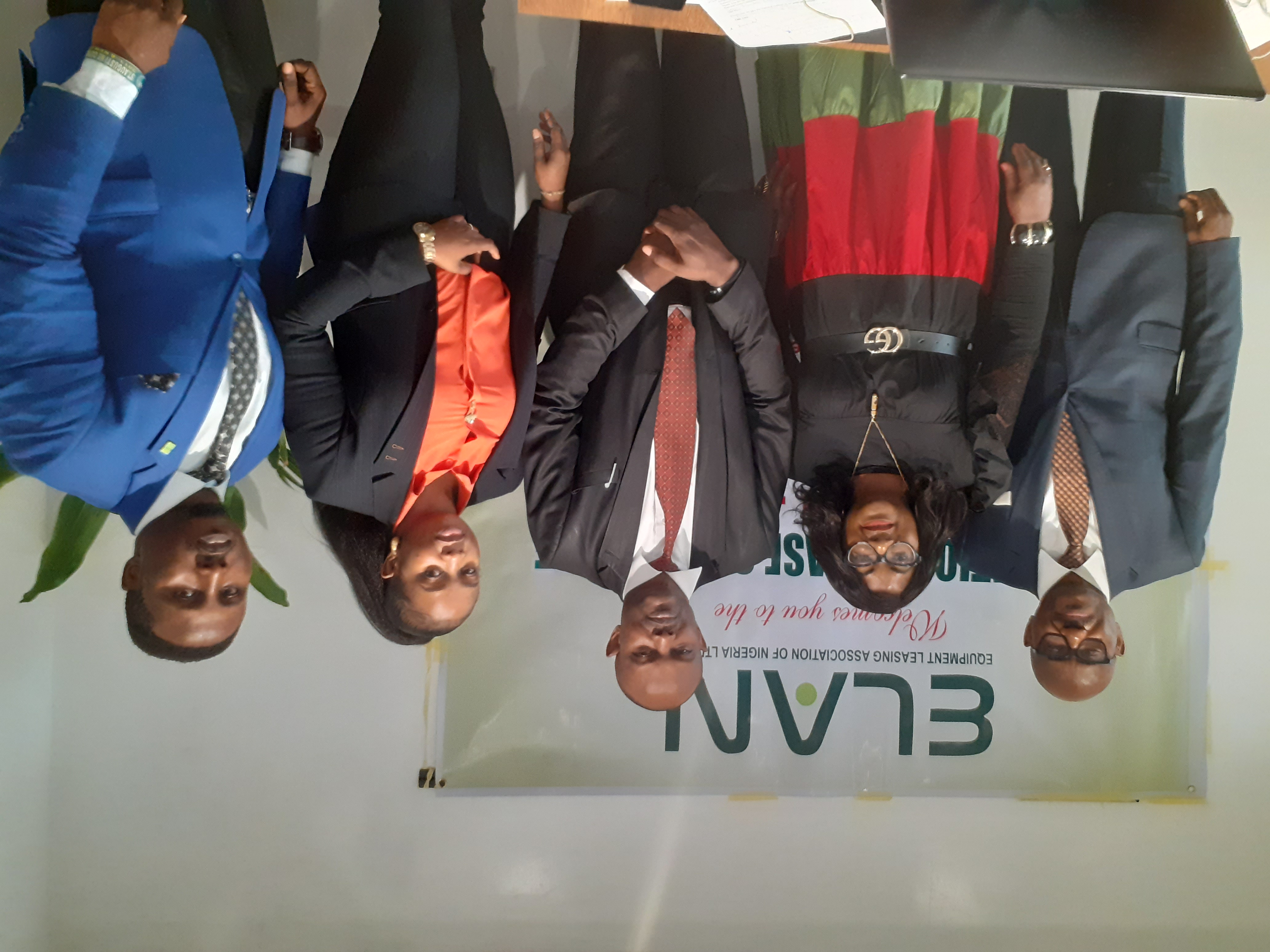

17TH NATIONAL LEASE CONFERENCE 2019
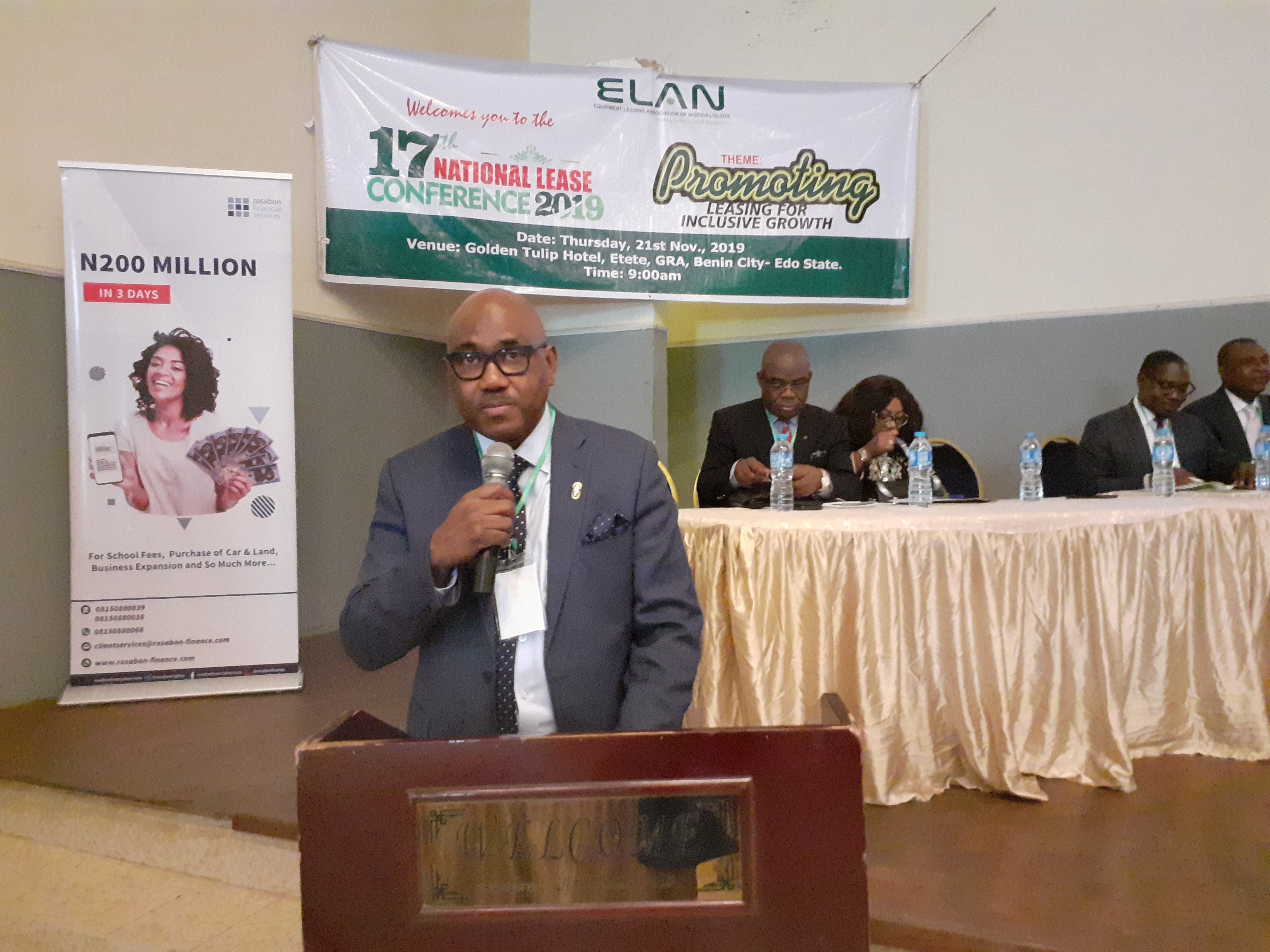
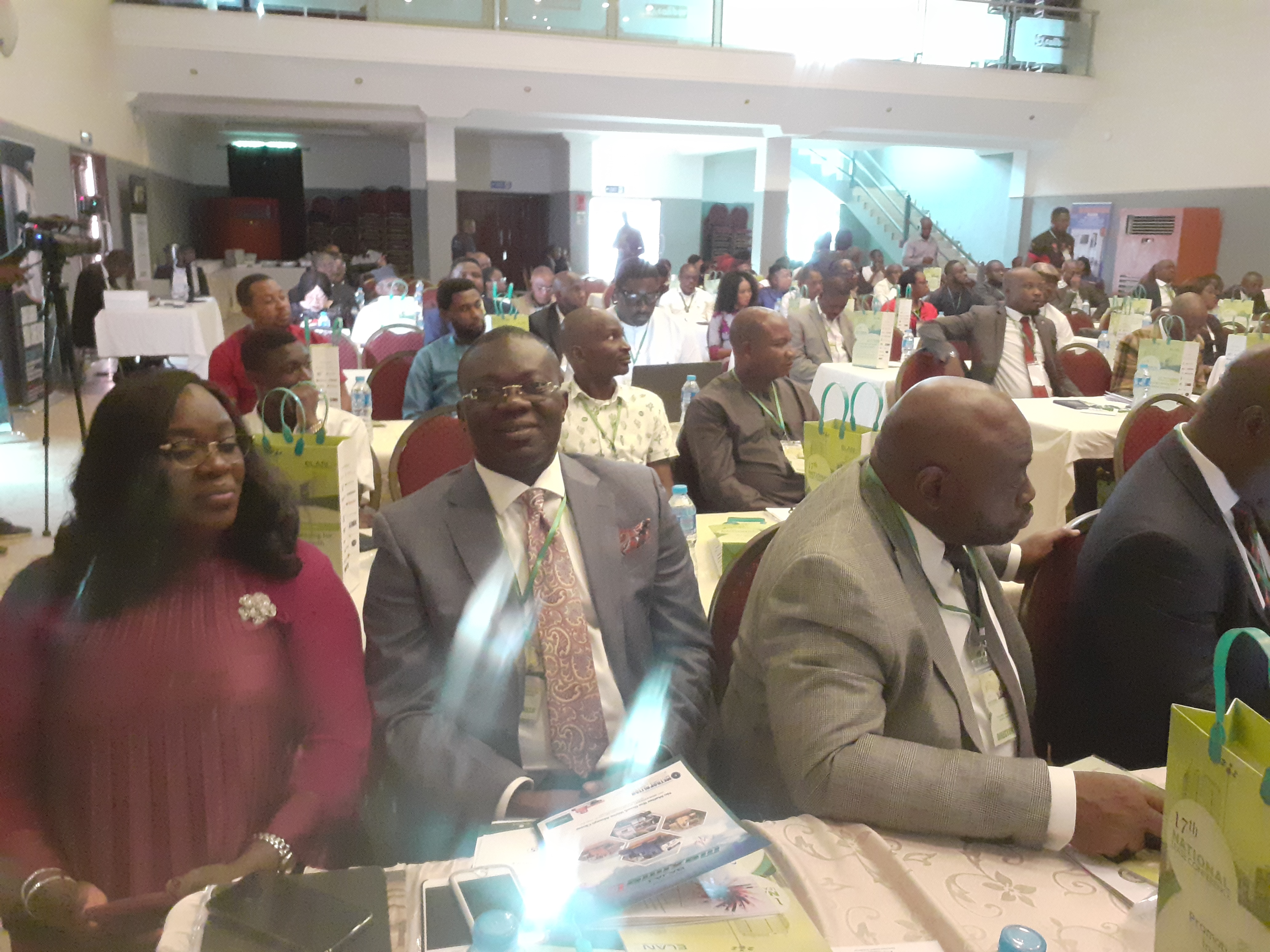
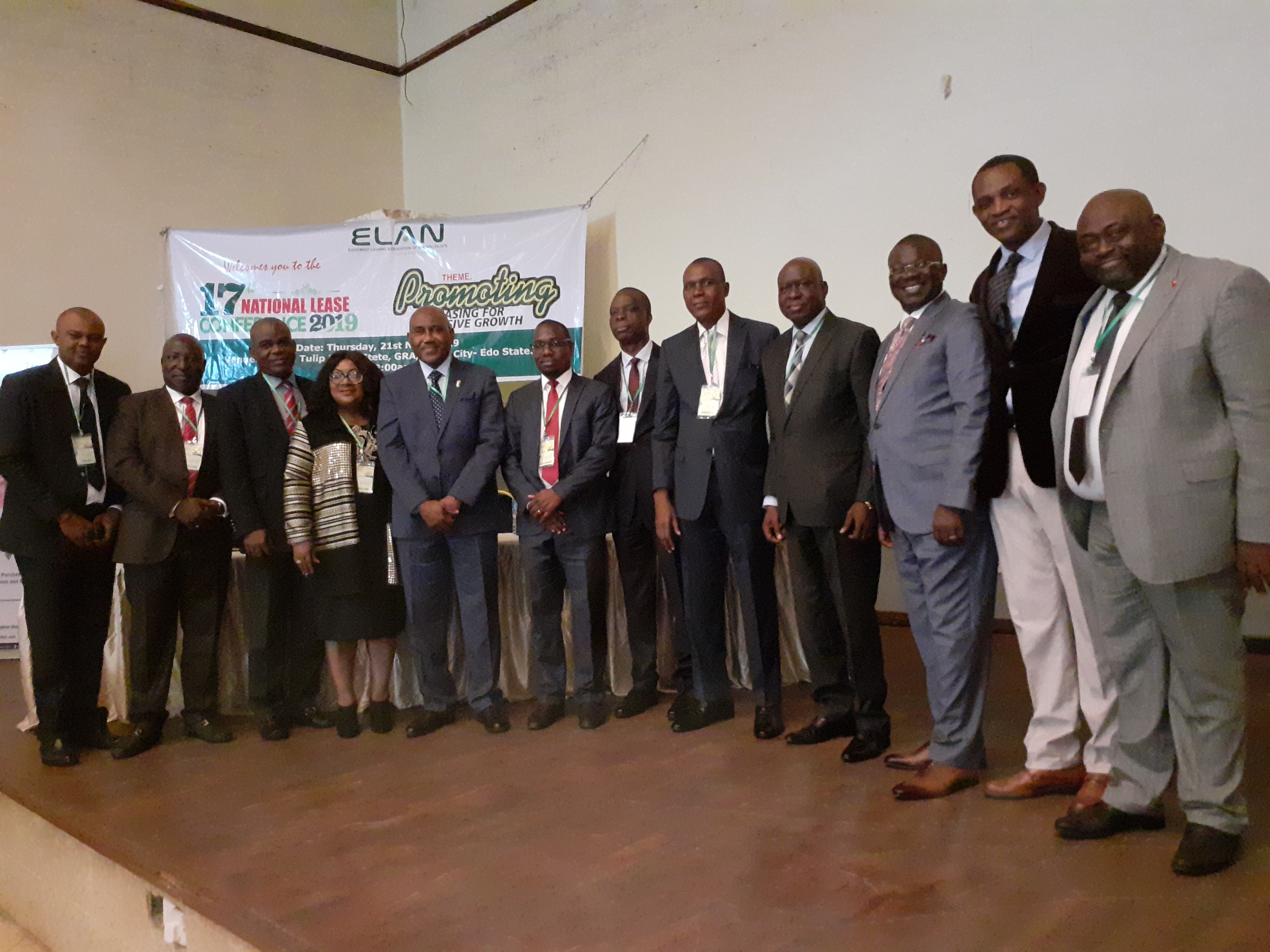


16TH NATIONAL LEASE CONFERENCE 2018
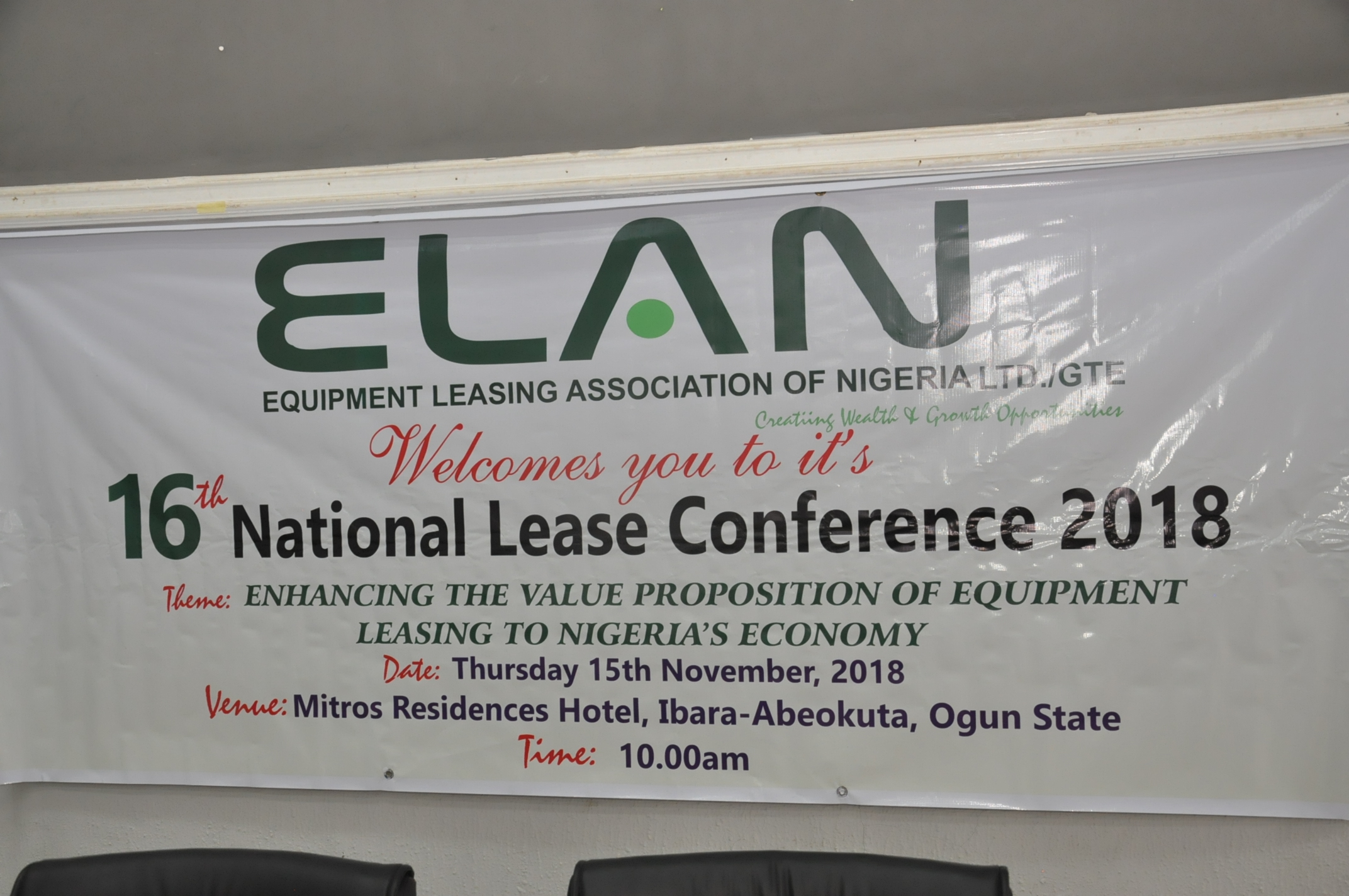
COMMUNIQUE ISSUED AT THE 16TH NATIONAL LEASE CONFERENCE ORGANISED BY THE EQUIPMENT LEASING ASSOCIATION OF NIGERIA (ELAN), HELD ON THURSDAY, 15TH NOVEMBER 2018 AT MITROS RESIDENCES HOTEL, IBARA – ABEOKUTA, OGUN STATE
1.0 BACKGROUND
In furtherance of its objective of promoting the ideals of leasing in Nigeria and its advocacy drive, the Equipment Leasing Association of Nigeria (ELAN) organised its 16th National Lease Conference held on Thursday, 15th November 2018 at Mitros Residences Hotel, Ibara – Abeokuta, Ogun State. The theme of this year’s conference was “ENHANCING THE VALUE PROPOSITION OF EQUIPMENT LEASING TO NIGERIA’S ECONOMY”.
The Annual National Lease Conference is the biggest gathering of stakeholders in the Nigerian leasing industry, which has become a major platform for the discussion of pertinent issues affecting the development of the leasing industry and the economy at large. This year, which marks the 16th Anniversary of the National Lease Conference, was packaged to stimulate valuable investments for sustainable growth and development in our national economy, further entrench the value propositions of equipment leasing to developmental initiatives, explore the emerging opportunities in our national economy, and create effective platform for business networking.
The conference considered among other things, the relevance of leasing to the achievement of Government developmental initiatives at all levels, and the issues focusing on the development of the Nigerian Leasing industry for an impactful contribution to the National economy.
The conference was attended by high net worth professionals from within and outside the leasing industry, most especially the business community in Ogun State comprising the Nigerian Medical Association, Nigerian Association of Small Scale Industrialists, National Association of Small and Medium Scale Enterprises, Leasing Practitioners, Financiers, Government MDAs amongst all. Paper presentations were done by erudite scholars, with the Panel Discussion being handled by distinguished Panelists. Key papers and subjects include:
- Public Sector Leasing: Enhancing Efficiency, Opportunities and Critical Success Factors – Adegboyega Adegun, General Manager, Corporate Banking Group, Sterling Bank Plc
- Scaling up Access to Finance for SMEs – The imperative of Leasing – Jonathan Gigin, Senior Financial Sector Specialist/Regional Programme Manager, International Finance Corporation
- Scaling up Access to Finance for SMEs – Role of Credit Bureau, Tunde Popoola, Chairman, Credit Bureau Association of Nigeria (CBAN)
- Exploring Alternative Funding Sources for Leasing – Gregory Ogbebor, Head, Structured Finance, Lotus Capital Limited
- Investing in Critical Sectors of the Nigerian Economy: Opportunities, Policy Framework and Risks Analysis, Emmanuel Ajayi, MD/CEO Swiss Biostadt Limited (Healthcare) & Hajia Fatima Shinkafi (Mrs), Executive Secretary/CEO, Solid Minerals Development Fund (Mining)
This was followed by a panel discussion on “Harnessing the Developmental Initiatives of Equipment Leasing in Nigeria’s Economic Agenda – Role, Benefits & Institutional Challenges. The Panelists were: Mr Tunde Netufo, Managing Director/CEO Frontline Trust Limited; Alex Mbakogu, Executive Director/Chief Financial Officer, C&I Leasing Plc; Patrick Iniovosa, Managing Director/CEO Stirling Trust Company Limited and Adepeju Adebajo (Mrs), Hon. Commissioner for Agriculture, Ogun State represented by Mr Ibrahim B. A. The Panel Discussion session was moderated by Alfred Okugbeni, Chairman, ELAN Board’s Programme Committee.
2.0 OBSERVATIONS
Conference observed that:
- The Federal Government’s initiatives to revitalise the economy, including the Economic Recovery and Growth Plan (ERGP), has been showing positive signs. Recent statistics indicate estimated GDP growth of 2.1% for 2018 up from 0.8% in 2017, reflecting improved oil prices, revenue and production as well as the recently introduced foreign exchange measures that contribute to better foreign exchange availability and rate stability.
- The positive trajectory for the economy should gain steam as the government begins to implement the structural reforms outlined in the ERGP and the multiplier effects of investment in infrastructure alongside the improvement in business environment begin to manifest. However, there is the need for the growth to be inclusive, especially in the areas of job creation, poverty alleviation and economic diversification.
- The attributes of leasing which centre on easy and convenient access to capital equipment, can be brought to bear to support the government developmental initiatives and achieve inclusive growth.
- Leasing, has the capacity to provide the public sector with access to certain equipment to facilitate infrastructure investments, developing and providing solutions that fit their specific needs and requirements.
- The impactful visibility of leasing is increasing in Nigeria, contributing to capital formation in the economy and creating wealth. In 2017, outstanding lease volume was estimated at N1.44trillion, up from 1.26trillion in 2016, representing a growth rate of 14.5 percent. Assets worth over N8.98trillion have been financed in the past fifteen years and the outlook for the industry remains optimistic.
- Leasing as a catalyst, has the capacity to bridge the wide financing gaps in all sectors of the economy and the increasing relevance of leasing to capital formation with the challenge of access to finance especially to MSMEs, to enhance their productivity and profitability and make meaningful contribution to GDP.
- The public sector presents huge business opportunities to the leasing industry in major sectors of the economy including Agriculture, Solid Minerals, Transportation (Haulage/Commuting), Healthcare etc.
- There is need to strengthen the capacity of leasing industry through the provision of appropriate funding mechanism to finance lease transactions. The prevalence of short term funding sources, which are usually expensive, limits the capacity of lessors to finance leases. This issue has been aggravated with the devaluation of the Naira, which increases the cost of assets and the waning appetite of banks to lend money.
- There is need for players in the leasing industry to adopt sound corporate governance practices, and proper record keeping in order to attract the necessary support.
- Enhanced knowledge of the market especially the MSMEs, specialised equipment, new technologies to the market, forming appropriate synergy with a technical partner or local sponsor amongst others will facilitate Lessors’ success factors in the industry.
- In order to further give impetus to the Equipment Leasing Act 2015, there is need for the establishment of fast track courts, to address leasing related issues.
- The leasing industry should equally collaborate with relevant partners such as credit bureaus to facilitate credit checks, monitoring, collection and portfolio management al geared to improve their leasing packaging and transactions.
- In order to deepen the penetration and utilisation of leasing in Nigeria, there is need for increased advocacy and awareness on the features and benefits of leasing, this will go a long way to erode the outright purchase mentality of most Nigerians.
- To facilitate the developmental objectives of the Equipment Leasing Act 2015, the Equipment Leasing Registration Authority needs to be inaugurated and operations kick started. The Equipment Leasing Act was enacted as part of the support framework for the leasing industry.
3.0 CONSEQUENTLY CONFERENCE RESOLVED AS FOLLOWS:
- Government at all levels should utilize equipment leasing to facilitate its developmental agenda, this will enhance infrastructural development, improve budget system and control as well as create wealth for national economic development. The leasing industry is willing to collaborate with Government to achieve the set out economic initiatives.
- Government should include leasing in the various intervention funds for the development of targeted sectors of the economy, this will enable the leasing industry contribute more to national economic development.
- ELAN should support players in the industry to build formidable portfolios, form synergy as well as build their capacity in specialised market.
- The leasing industry should increase its advocacy and lease awareness campaign, engaging with Government and other stakeholders.
- The Equipment Leasing Act 2015 is a major framework on leasing. ELAN should work with other stakeholders to fast track its implementation especially the operations of the Equipment Leasing Registration Authority.
In conclusion, the leasing industry remains significant in stimulating more valuable investments at this period where the economy is still struggling to get out of the woods.
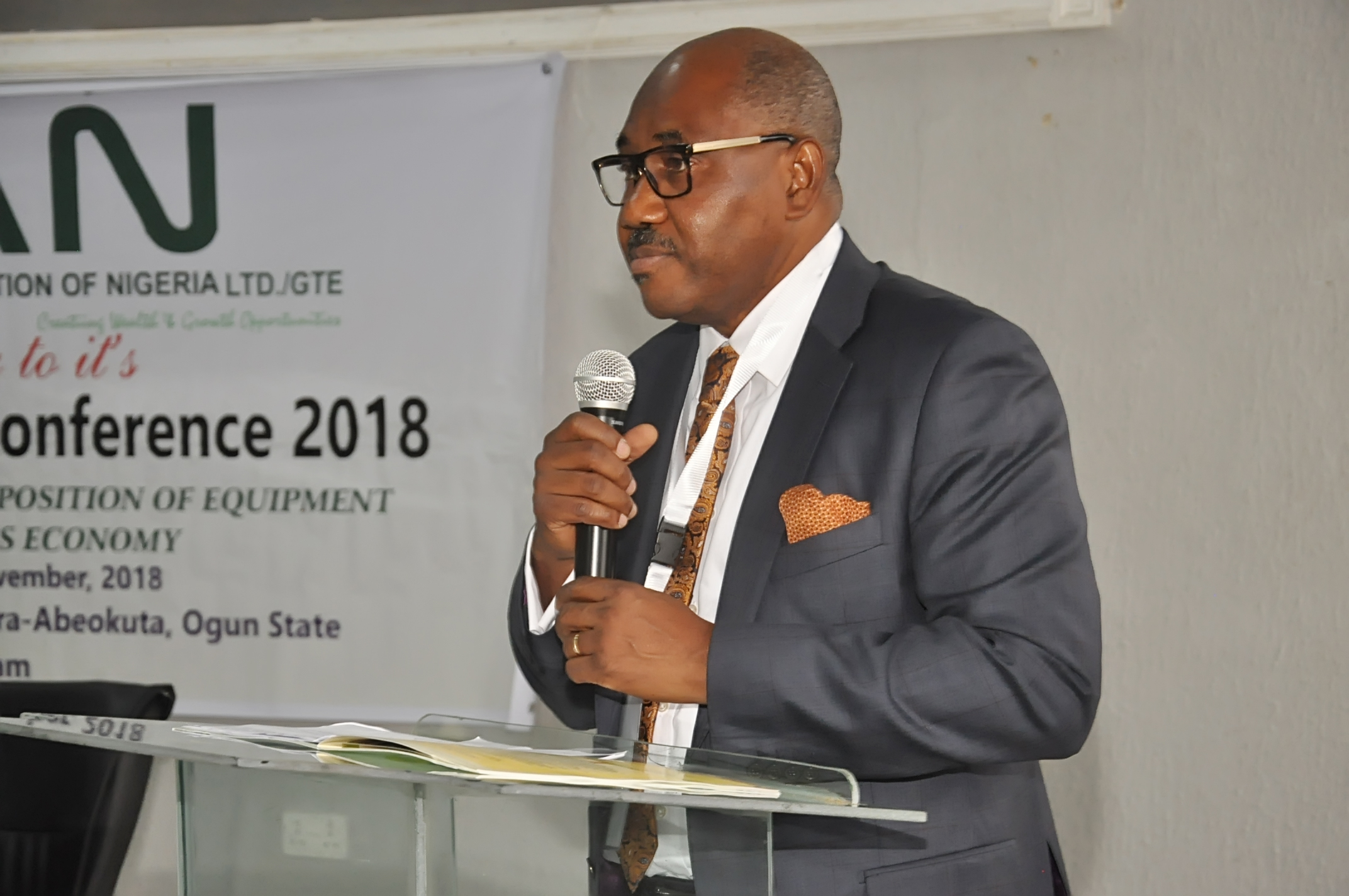

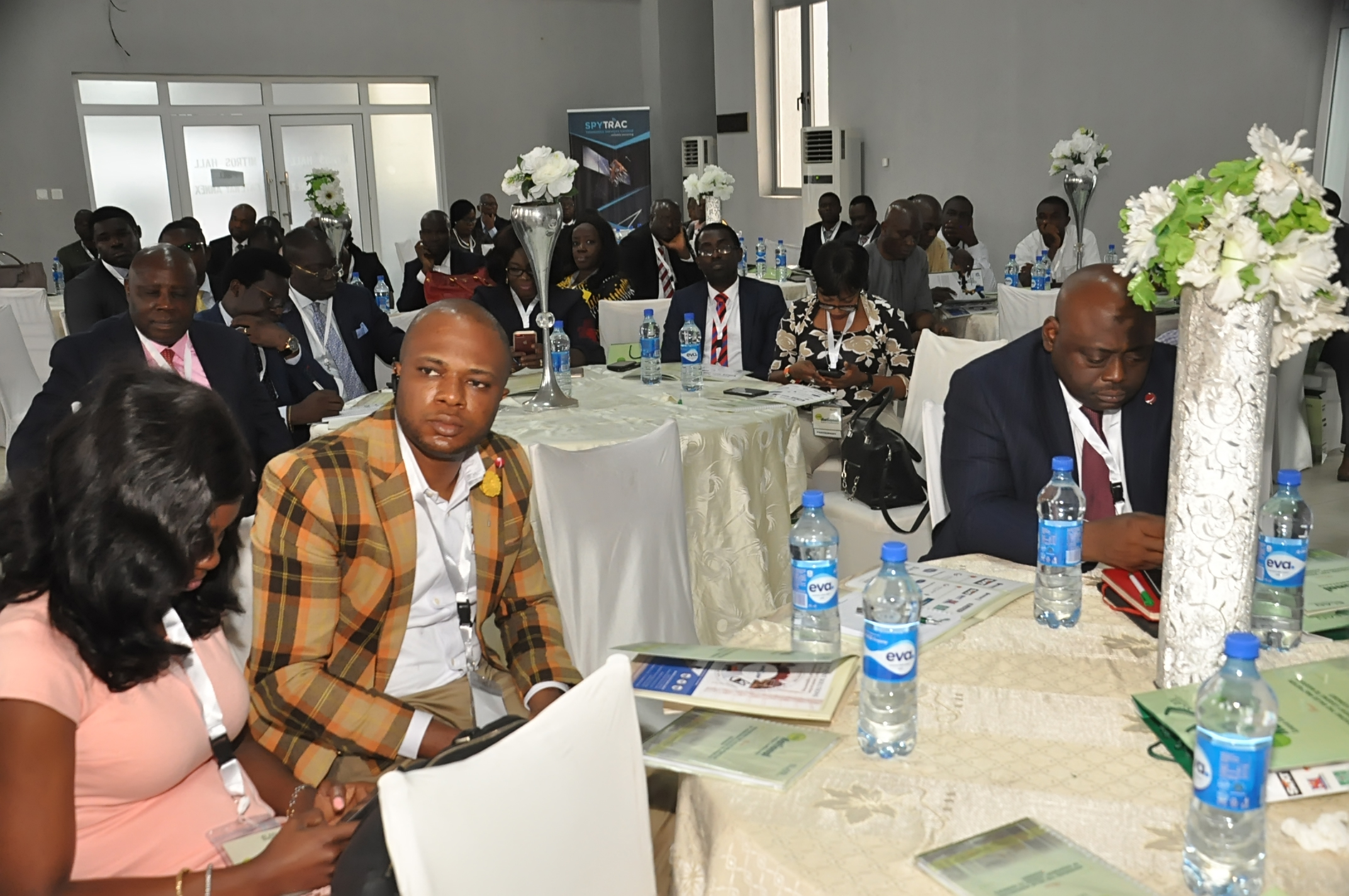



15TH NATIONAL LEASE CONFERENCE 2017
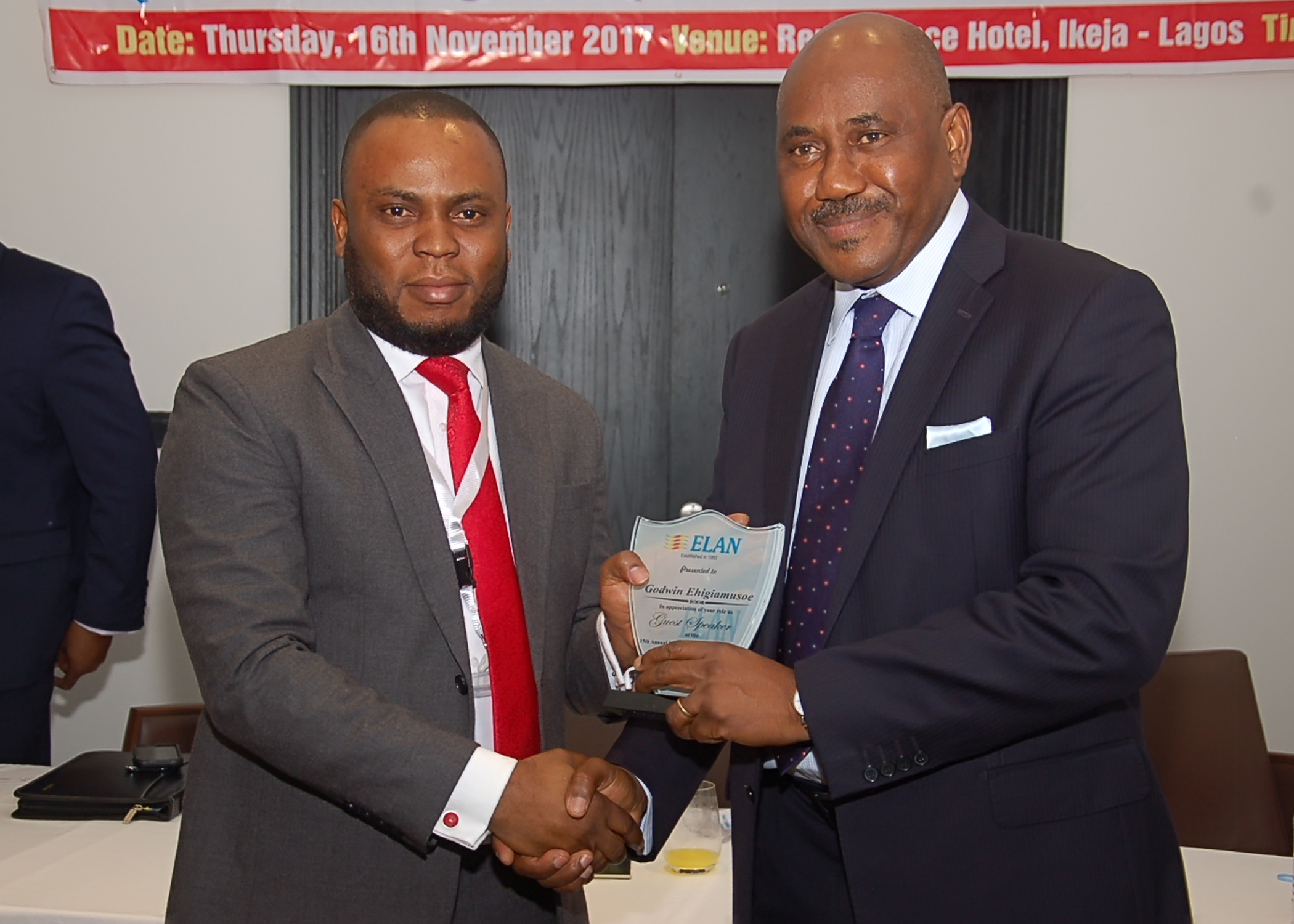
OLUTOYIN OKEOWO, DIRECTOR ELAN (RIGHT) PRESENTING A PLAQUE OF HONOUR TO EFOSA AIGBE, HEAD TREASURY, LAPO MICROFINANCE BANK LTD REPRESENTING GODWIN EHIGIAMUSOE, MD/CEO LAPO MFB LTD AT THE EVENT
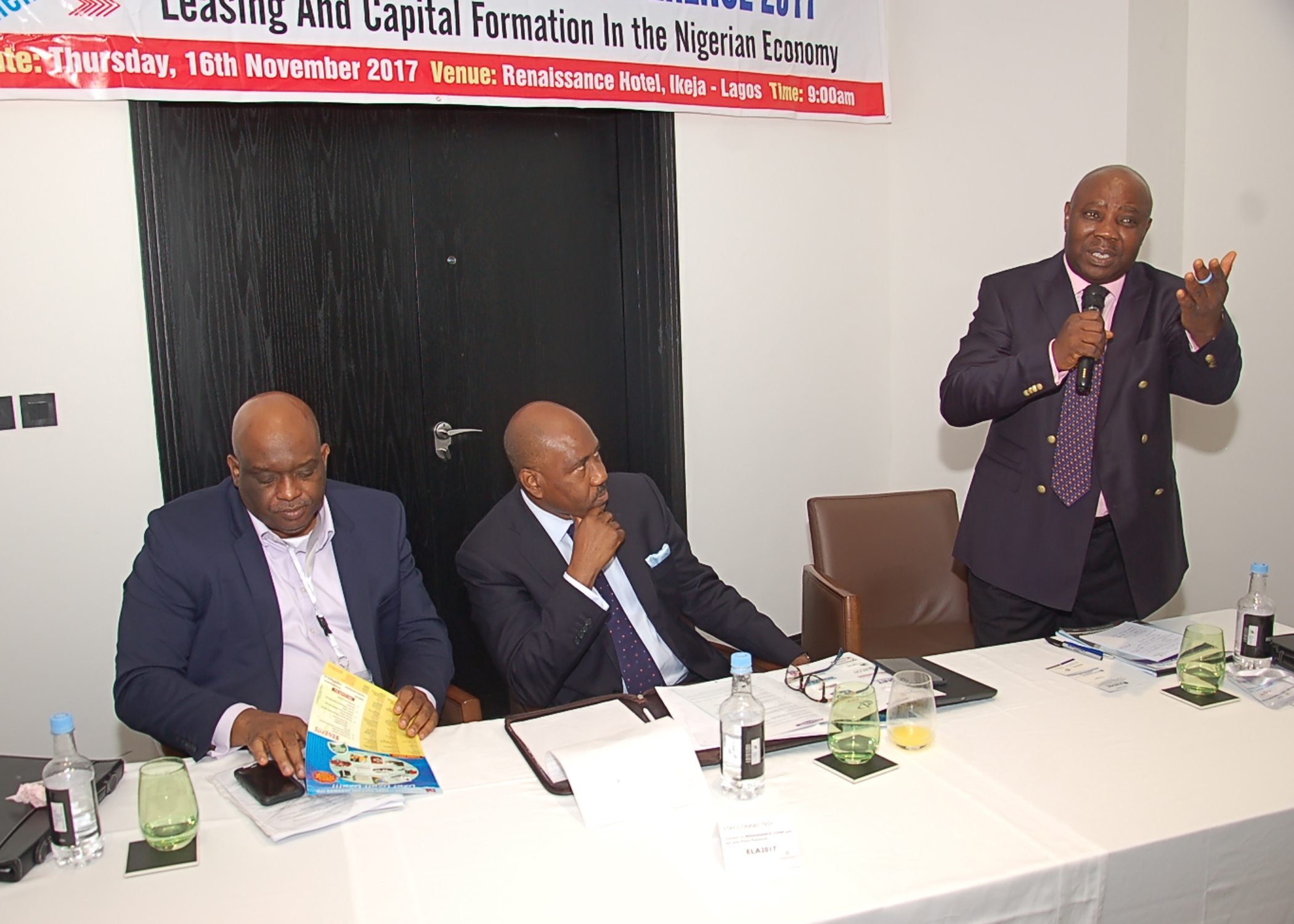
(L-R): ANDREW OTIKE-ODIBI, MD/CEO C&I LEASING PLC; OLUTOYIN OKEOWO, ELAN DIRECTOR REPRESENTING ELAN CHAIRMAN AND PATRICK INIOVOSA, MD/CEO STIRLING TRUST COMPANY LIMITED AT THE EVENT
COMMUNIQUE ISSUED AT THE 15TH NATIONAL LEASE CONFERENCE ORGANISED BY THE EQUIPMENT LEASING ASSOCIATION OF NIGERIA (ELAN) HELD ON THURSDAY, 16TH NOVEMBER 2017 AT RENAISSANCE HOTEL, IKEJA – LAGOS
BACKGROUND
In furtherance of its advocacy and promoting the ideals of leasing in Nigeria, the Equipment Leasing Association of Nigeria (ELAN) organised its 15th National Lease Conference which was held on Thursday, 16th November 2017, at Renaissance Hotel, Ikeja – Lagos. The theme of this year’s conference was “LEASING AND CAPITAL FORMATION IN THE NIGERIAN ECONOMY”.
The Annual National Lease Conference is the biggest gathering of stakeholders in the Nigerian leasing industry, which has become a major platform for the discussion of pertinent issues affecting the development of the leasing industry and the economy at large. It was organised as part of ELAN’s effort to promote equipment leasing as a veritable and creative alternative financing instrument that can be utilised to create wealth, enhance economic growth, productivity and development as well as increase investment. This forum also provides effective platform for unrivalled business networking and solutions.
The conference considered among other things, the relevance of leasing to the achievement of Government developmental initiatives, and created the platform for the cross pollination of ideas that would further stimulate leasing development in Nigeria and its impactful contributions to the national economy.
The conference was attended by high net worth professionals from within and outside the leasing industry. Paper presentations were done by distinguished Speakers, while the Panelists discussed extensively on the outcomes. Key papers and subjects include:
Managing the Lease Portfolio: Protective Mechanisms, Funding and Profitability Considerations – Andrew Otike–Odibi, MD/CEO C&I Leasing Plc
Creating Wealth, Generating Employment and Poverty Alleviation: The Leasing Initiative – Godwin Ehigiamusoe, MD/CEO LAPO Microfinance Bank Limited
Exploring the Emerging Opportunities in the Leasing Industry: Product Development & Success Factors – Patrick Iniovosa, MD/CEO Stirling Trust Company Limited
Promoting the Customers’ Rights as Essential Ingredients for Successful Leasing Business – Babatunde Irukera, DG/CEO Consumer Protection Council (CPC).
This was followed by a panel discussion on Harnessing the Developmental Initiatives of Equipment Leasing in Nigeria’s Economic Recovery – Role & Impact Analysis. The Panelists were:Jonathan Gigin, Senior Financial Sector Specialist/Regional Programme Manager, International Finance Corporation (IFC); Dr. Mudashiru Olaitan, Director, Development Finance, Central Bank of Nigeria (CBN), represented by Adebisi Adedeji, Deputy Director, Head, Development Finance Office, CBN and Debola Agunbiade, MD/CEO CFS Financial Services Limited. The panel discussion was moderated by Alfred Okugbeni, ELAN Board’s Programme Committee Chairman.
- OBSERVATIONS
Conference observed that:
- The economic diversification of Government and inclusive growth is coming to fruition. Higher oil output and positive dynamics from the agricultural sector helped the economy exit recession. Although the economy is still fragile, there are encouraging signs emerging throughout the economy.
- The growth and development of any economy depends on equipment leasing which has gained significant global recognition as a creative financing alternative for the acquisition of capital assets. The appeal of leasing lies in the fact that it meets the diverse equipment needs.
- The attributes of leasing which centered on easy and convenient access to capital equipment, can be brought to bear to support the investment in infrastructure, agriculture, solid minerals and other priority focus of Government, which would stimulate production and employment.
- The impactful visibility of leasing is increasing in Nigeria, contributing to capital formation in the economy. In 2016, outstanding lease volume was estimated at N1.26trillion, up from N1.1trillion in 2015, representing a growth rate of 14 percent. Assets worth over N6.89trillion have been financed in the past ten years, and can significantly improve with the right support for the industry.
- Leasing presents enormous opportunity for micro, small and medium enterprises to enhance their productivity and profitability and make enormous contribution to GDP.
- There is an urgent need for players in the leasing industry to come together to design innovative products, which are focused on meeting SMEs need, having analysed the risks involved.
- There is need to strengthen the capacity of leasing practitioners and develop good structure, that would enhance their evaluation and assessment process of lease proposal taking into cognisance the micro and macro environments before taking leasing decisions.
- There is need for appropriate synergy amongst players in the leasing industry, to enable them capture the immense opportunities in all the States of the Federation, especially on agriculture and mining.
- Players in leasing business must take cognisance of their regulatory obligation and balance it with the rights of consumers in entering into a lease agreement with the lessee. It is significant for lessors to recognise the important role lessees play in the success or otherwise of their business.
- The practice of leasing is witnessing a new dawn with the coming into force of the Equipment leasing Act 2015, bringing sanity, certainty and encouraging more investments in the leasing industry. However, the Act must be fully implemented including commencing the operation of the Equipment Leasing Registration Authority, to realise its developmental objectives.
- The funding challenge remains critical as most practitioners rely on short term sources mainly banks for funding which are expensive. These sources are not suitable for leases which ideally require medium to long term financing.
- In order to deepen the penetration and utilisation of leasing in Nigeria, there is need for increased advocacy and awareness on the features and benefits of leasing.
2.1 CONSEQUENTLY CONFERENCE RESOLVED AS FOLLOWS:
- Government should utilise leasing in its developmental agenda and as a practical solution to achieving its set out policy initiatives. The leasing industry is willing to collaborate with Government to achieve the set out economic initiatives.
- Leasing companies be allowed to access pension, sovereign wealth funds and the various intervention funds for development in specific sectors of the economy. The Government through relevant bodies like the Central Bank of Nigeria (CBN) and the Bank of Industry should facilitate the development of specialised financial instruments and funding windows for leasing.
- The leasing industry should engage in innovative products to unleash the potential of SMEs and enable them reach their full potential.
- The Leasing Act is a major framework on leasing. ELAN should work with other stakeholders to fast track its implementation especially the operations of the Equipment Leasing Registration Authority.
- The leasing industry should increase its advocacy and lease awareness campaign, engaging with Government and other stakeholders.
In conclusion, significant progress can be made in moving the industry forward with effective engagement and goodwill from stakeholders. The leasing industry remains committed and willing to continue to enhance its value propositions to national economic development.
14TH NATIONAL LEASE CONFERENCE 2016
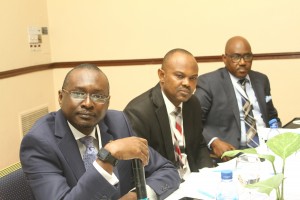
(L-R): ABDULLAHI M.IBRAHIM, VICE CHAIRMAN; ANDREW EFURHIEVWE, EXECUTIVE SECRETARY AND OLUTOYIN OKEOWO, DIRECTOR AT THE EVENT
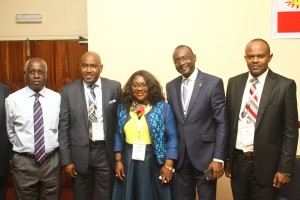
(R-L): ANDREW EFURHIEVWE, EXECUTIVE SECRETARY; ABDULLAHI M.IBRAHIM, VICE CHAIRMAN; ELIZABETH EHIGIAMUSOE, OLUTOYIN OKEOWO, BOARD MEMBERS AND I.K.MBAGWU, MD/CEO CUMBRIAN CONSULTS LTD AT THE EVENT.
C0MMUNIQUE ISSUED AT THE 14TH NATIONAL LEASE CONFERENCE ORGANISED BY THE EQUIPMENT LEASING ASSOCIATION OF NIGERIA (ELAN) HELD ON THURSDAY, 10TH NOVEMBER 2016 AT SHERATON LAGOS HOTELS, IKEJA, LAGOS
- BACKGROUND
In furtherance of her professional responsibilities, advocacy and promoting leasing in Nigeria, the Equipment Leasing Association of Nigeria (ELAN) organised its 14thNational Lease Conference which was held on Thursday, November 10th 2016, at Sheraton Lagos Hotels, Ikeja – Lagos. The theme of this year’s conference was “LEASING AND ECONOMIC DEVELOPMENT IN CHALLENGING TIMES”.
The Annual National Lease Conference is the highest gathering of stakeholders in the Nigerian leasing industry, which has become a major platform for the discussion of pertinent issues affecting the development of the leasing industry and the economy at large. It was organised as part of ELAN’s effort to promote equipment leasing as a veritable and creative alternative financing instrument that can be utilised to create economic wealth, enhance economic growth, productivity and development as well as promote investment. This forum also provides the highest platform for unrivalled business networking and solutions.
The conference considered among other things, the suitability of equipment leasing to today’s Nigerian economy, its Unique Value Proposition (UVP) and developmental initiatives that could be exploited to foster greater economic development, and also provided the platform for the cross pollination of ideas that would further stimulate leasing development in Nigeria and its impactful contributions to the national economy.
The conference was attended by high net worth professionals from within and outside the leasing industry. Paper presentations were done by seasoned and distinguished Speakers, while the Panelists discussed extensively on the outcomes. Key papers and subject include:
Leasing Initiatives in Stimulating SMEs as Catalyst for Growth – Toki Mabogunje, Business Consultant SMEs/Vice President, Lagos Chambers of Commerce & Industry
Developing the Vendor Leasing Market: The Imperatives of Effective Synergy amongst Stakeholders – OlutoyinOkeowo, MD/CEO Metropolitan Motors Limited
Public Sector Leasing – Enhancing Efficiency in Asset Acquisition Process and Infrastructure Financing – I.K.Mbagwu, MD/CEO Cumbrian Consults Limited
The Role of Leasing in Nigeria’s Economy Diversification Agenda – Sola David-Borha, Group CEO Stanbic IBTC Holdings
The Imperatives of Information Technology in Modern Lease Administration – Ayoola Olaitan, Chief Operating Officer, Citrans Telematics Solutions Limited.
This was followed by a panel discussion on Deepening the Developmental Role of Nigerian Leasing Industry: Challenges, Institutional Framework, Investment and Strategic Directions. The Panelists were: Emeka Ndu, Vice Chairman, C&I Leasing Plc; represented by Alex Mbakogu, Chief Financial Officer, C&I Leasing Plc; Adebayo Adeleke, Managing Director/CEO Opticom Leasing Limited and Abdullahi Ibrahim, Vice Chairman, Equipment Leasing Association of Nigeria and Regional Executive of First Bank Plc. The panel discussion was moderated by Toochukwu Agwuncha, a leasing professional.
2.0 OBSERVATIONS.
Conference observed that:
- The global economic developments in the recent times especially the decline in oil price have continued to impinge greatly on Nigeria’s key macroeconomic variables, with consequential slow growth recorded in major sectors of the economy. The situation is critical and requires urgent intervention to get the economy back on the right track.
- The Federal Government policy initiatives to revamp the economy which include diversification of the economy to reduce reliance on revenues from oil and gas exports with focus on agriculture, mining and manufacturing as well as massive investment in infrastructure, are laudable.
- Equipment leasing has the capacity to support the achievement of the policy initiatives of Government, given its developmental attributes. These attributes which centre on easy and convenient access to capital equipment, can be brought to bear to support the planned massive investment in infrastructure (power, road and rail), agriculture, manufacturing and solid minerals, that would stimulate production, employment and over all development of the economy.
- The impactful visibility of leasing is increasing in Nigeria, contributing to capital formation in the economy and creating wealth. In 2015, outstanding lease volume was estimated at N1.1trillion, up from N869 billion in 2014, representing a growth rate of 27.3 percent. Assets worth over N5.8trillion have been financed in the past ten years, and can significantly improve with the right support for the industry.
- While tremendous contributions have been made especially with the enactment of the Equipment Leasing Act 2015, which provides the legal framework for the practice of leasing in the country, it is important to continue to strengthen the capacity of the leasing industry and make it more responsive to its developmental role in the Nigerian economy.
- There is the need for innovative funding mechanism. The funding challenge remains critical as most practitioners rely on short term sources mainly banks for funding which are expensive. These sources are not suitable for leases which ideally require medium to long term financing.
- The prevailing difficult economic situation in the country has equally impacted adversely on the growth and development of the leasing industry such as increase in costs, depletion in value of investment, reduction in funding sources and increasing default rate.
- SMEs bring a host of socioeconomic benefits, but largely they have not been provided with the technical and financial support they need to flourish and meet their potential.
- Vendor leasing is an important market development strategy. In Nigeria, various companies in automobile, home appliances and power generating industries, have employed vendor leasing programme to improve their There are immense opportunities in this market.
- Public Sector bodies are continually up against funding challenges. The current economic environment makes it more imperative for public sector asset managers to adopt creative financing options in acquiring, managing and maintaining assets and infrastructure with maximum efficiency.
- There is need for appropriate synergy amongst stakeholders in the leasing industry including Government, vendors, lessors, lessees etc, to enhance the value proposition of leasing.
- Information Technology is essential to efficient leasing practice as it enhances various aspects of the business operations including lease assessment, processing and management, as well as, marketing and regulatory functions.
- The Equipment Leasing Act 2015, will among other things, create, clarity, sanity and certainty into the practice of leasing that would enhance confidence and stimulate more investment in the industry.
- There is need for increased advocacy and awareness for leasing to deepen its penetration and utilisation in Nigeria.
- There is need for Lessors to imbibe sound credit analysis and appropriate documentation processes to safeguard their investment.
2.1 CONSEQUENTLY CONFERENCE RESOLVED AS FOLLOWS:
- The Government should utilise leasing in its developmental agenda and as a practical solution to the gaping challenges for asset acquisition financing in the public sector. The leasing industry is willing to collaborate with Government to achieve the set out economic initiatives.
- Leasing companies be allowed to access pension and the various intervention funds for development in specific sectors of the economy. The Government through relevant bodies like the Central Bank of Nigeria (CBN) and the Bank of Industry should facilitate the development of specialised financial instruments and funding windows for leasing.
- The leasing industry should devise strategies to overcome the direct impact of current economic challenges and tap into emerging opportunities.
- The leasing industry should engage in specialised assets which will unleash the potential of SMEs and enable them reach their full potential. Financing of medical equipment, agricultural equipment, processing and production equipment etc will facilitate businesses and enable them to grow and contribute to the development of the nation’s economy.
- The key parties in vendor leasing progrmamme i.e. lessor, vendors, lessee and insurance companies should understand their roles in the lease process and work together to promote the ideals of vendor leasing. Each party must see its role as critical to the success of the transaction and perform the expected role effectively.
- ELAN should support capacity building in the industry to enhance the skills and knowledge of lease practitioners, to protect their investment and expand their horizon.
- The Leasing Act is a major framework on leasing. ELAN should work with other stakeholders to fast track its implementation especially the formal inauguration of the Equipment Leasing Registration Authority.
- The industry should increase its usage of information technology to enhance business operation and strive towards adopting universal leasing software that will standardise operations and lead to better service delivery.
- The leasing industry should as a matter of urgency increase its advocacy and lease awareness campaign, engaging with Government and other stakeholders..
In conclusion significant progress can be made in moving the industry forward as Government collaborates with all stakeholders. ELAN as a body has resolved to work with the appropriate Government ministries and agencies to create the post Leasing Act framework, with all the milestones and timelines, towards achieving an SME propelled and private sector driven national economic renaissance with Equipment leasing as a fulcrum.
13TH NATIONAL LEASE CONFERENCE 2015
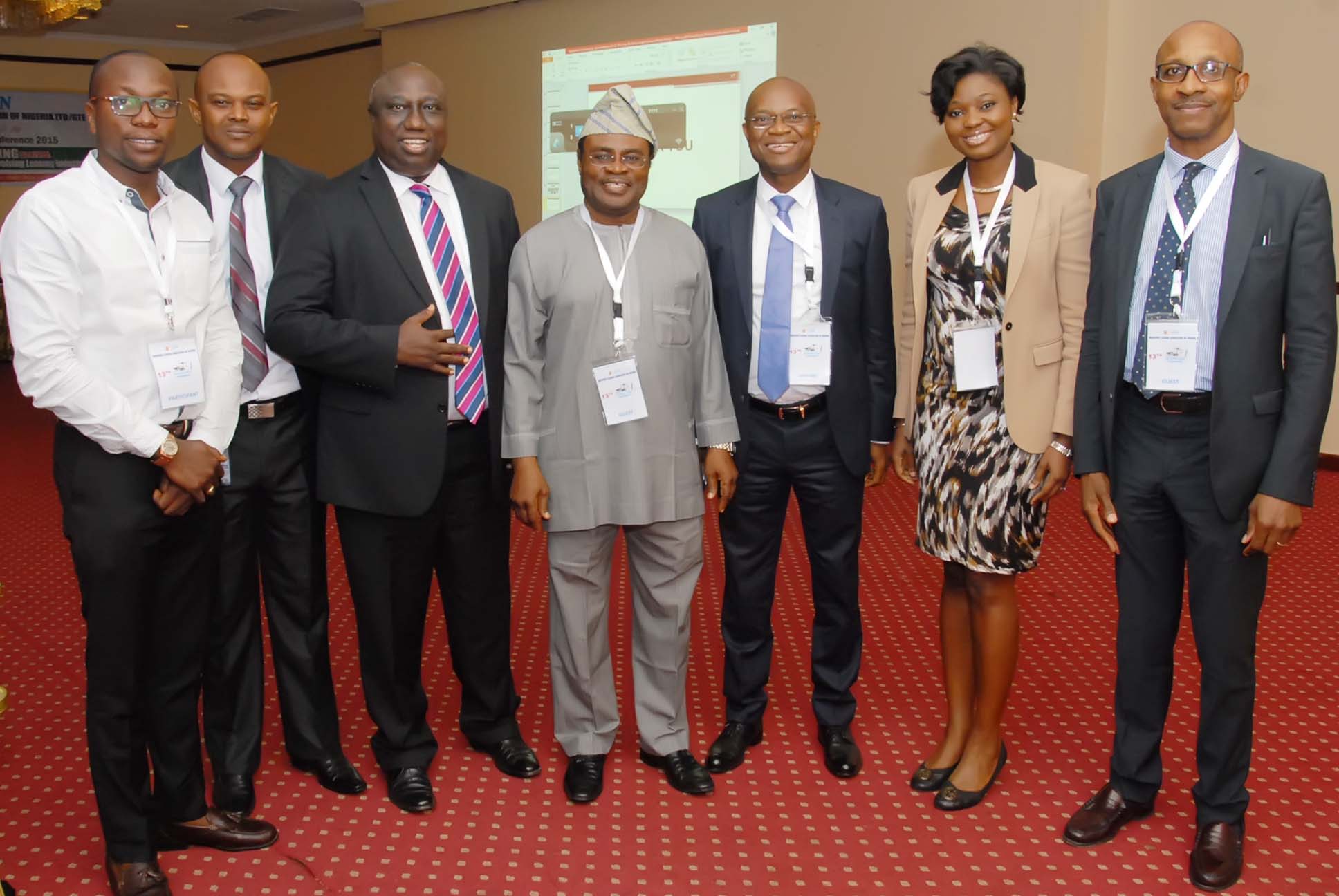
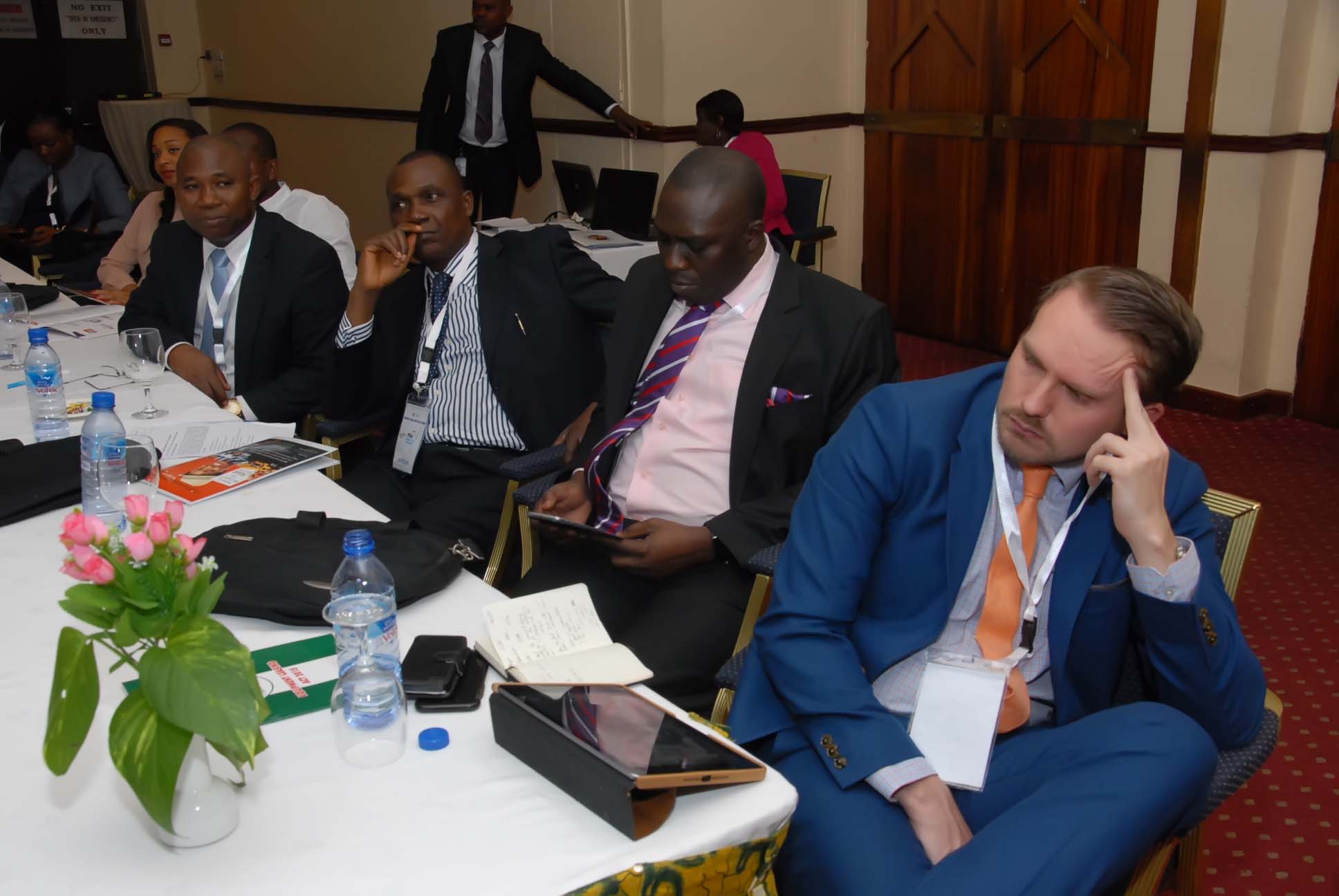
C0MMUNIQUE ISSUED AT THE 13TH NATIONAL LEASE CONFERENCE ORGANISED BY THE EQUIPMENT LEASING ASSOCIATION OF NIGERIA (ELAN) HELD ON TUESDAY, 24TH NOVEMBER 2015 AT SHERATON LAGOS HOTELS, IKEJA, LAGOS
- BACKGROUND
In furtherance of its lease awareness campaign, the Equipment Leasing Association of Nigeria (ELAN) organised its 13th National Lease Conference held on Tuesday, November 24th 2015, at Sheraton Lagos Hotels, Ikeja – Lagos. The theme of this year’s conference was “EQUIPMENT LEASING ACT 2015: UNDERSTANDING AND PLAYING IN THE EVOLVING LEASING INDUSTRY”.
The Annual National Lease Conference is the highest gathering of stakeholders in the Nigerian leasing industry, and has become a major platform for engagement on topical issues in the leasing industry and the national economy. It was organised as part of ELAN’s effort to promote equipment leasing as a foremost financing instrument that can be utilised to create economic wealth, enhance economic growth and provide the highest platform for unrivalled business networking and solutions.
This year’s conference, which focused on the regulatory environment especially the new Equipment Leasing Act 2015, is indeed germane given its propensity to reposition the industry for greater contributions to national economic development. The conference considered among other things, key ingredients and the impacts of the Act, exploring evolving opportunities and effectively establishing the benefits to stakeholders in the leasing industry, for onward contributions to national economy.
The conference was attended by high net worth professionals from within and outside the leasing industry. There were paper presentations by Distinguished Speakers and Panelists, who discussed extensively on the subject including:
The Impact of a Virile Leasing Industry on the Economy – A Case Study of SMEs Development in Nigeria – Jude Anele, Diamond Bank Plc
The Place of Information Technology in Managing Equipment Leasing Business Under the Leasing Act 2015 – Samuel Ajiboyede, Managing Director/CEO Fleet Partners Leasing Limited
The Anatomy of Equipment Leasing Act 2015 – Theophilus Emuwa, Managing Partner, AELEX Legal Practitioners and Arbitrators
Implementation of the Leasing Act – Challenges and Imperatives for Success – Kevin Conroy, Team Leader, Enhancing Nigerian Advocacy for a Better Business Environment (ENABLE)
Promoting Leasing and Investment in Developing Economies – The Role of Leasing Law – Jonathan Gigin, International Finance Corporation (IFC)
Also, there was a panel discussion on Repositioning Leasing Industry for Effective Growth: Future Trend, Development and Support Framework. The Panelists were; Mr Luqman Mamudu, Director of Policy and Planning, National Automotive Design and Development Council (NADDC); Mr O. Nweke, Deputy Director, Other Financial Institutions Supervision Department, Central Bank of Nigeria (CBN) and Mr Alex Mbakogu, Chief Financial Officer, C&I Leasing Plc.
2.0 OBSERVATIONS
At the interactive session, the following observations and comments were made that:
- The enactment of the Equipment Leasing Act is a welcome development in the Nigerian Leasing Industry, and as such stakeholders should maximise the immense opportunities it presents, to facilitate the contributions of leasing to national economic development.
- The Equipment Leasing Act has made repossession of assets easier with just an application to the court.
- There is need for capacity building in the industry to enhance practitioners’ knowledge of the law and ensure compliance with the law.
- The leasing Act will attract investment into the industry, it is therefore imperative for practitioners in the industry to put proper structure and governance in place to be able to key into these opportunities.
- Leasing opportunities abound in heavy equipment in all the major sectors of the economy.
- There is need for lessors and indeed the leasing industry to develop support services that help to maintain leased assets.
- There is great need for information sharing among stakeholders in a leasing transaction including financiers, lessors and lessees.
- That all the Stakeholders that are named by the Law in the Registration Authority have been contacted and that the stage is set for the constitution.
- There is need for Government to recognise equipment leasing industry as one of the growth agencies that should be allowed to tap into the stagnated funds such as the pension funds, to reduce its cost of funding so as to enhance the value of its contribution to economic development. To this end, increased advocacy is needed to reassure the pension commission that the fund is safe with leasing.
2.1 RESOLUTIONS
- That all stakeholders should collaborate to ensure the successful implementation of the Equipment Leasing Act for enhanced contribution to economic development.
- That ELAN should work with the all stakeholders to build their capacity in the area of equipment leasing to facilitate their understanding and easy implementation of the Act.
- Lessors should adopt sound corporate governance to be able to key into the opportunities of the Act.
- The industry agreed to collaborate with the Healthcare Federation of Nigeria (HFN) to increase the level of leasing investment in the health sector.
- There should be appropriate funding mechanism for the leasing industry to overcome its funding challenge and deepen the penetration of leasing in the economy. In this regards, Government should include leasing as one of the businesses that can leverage on the pension fund for enhanced contribution to the nation’s economy.



